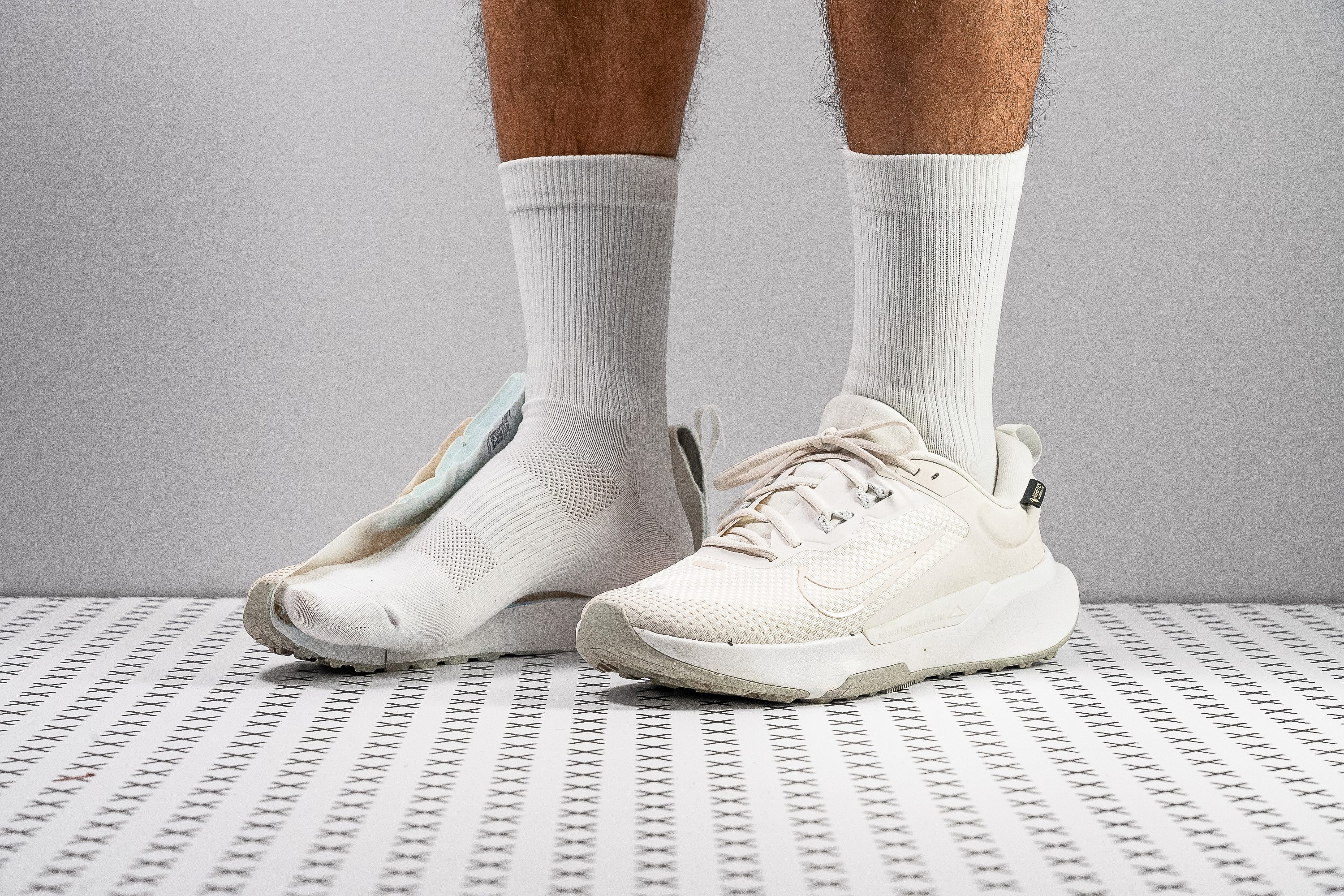Our verdict
Pros
- Impressive upgrade
- Top-notch waterproofing
- Amazing durability
- Exceptional stability
- Ideal for heel strikers
- Spacious toebox
- Excellent for winter conditions
Cons
- High price increase
- Firm ride
- Grip could improve
Audience verdict
Comparison
The most similar running shoes compared
+ + Add a shoe | |||||
|---|---|---|---|---|---|
| Audience score | 75 Bad! | 81 Good! | 75 Bad! | 75 Bad! | |
| Price | $130 | $170 | $170 | $170 | |
| Trail terrain | Light | ModerateTechnical | Light | Moderate | |
| Shock absorption | - | - | Moderate | - | |
| Energy return | - | - | Moderate | - | |
| Arch support | Neutral | Neutral | Neutral | Neutral | |
| Weight lab Weight brand | 10.3 oz / 293g 11.4 oz / 323g | 10.4 oz / 296g 10.7 oz / 303g | 9.9 oz / 281g 10.6 oz / 300g | 10.2 oz / 289g 10.4 oz / 295g | |
| Drop lab Drop brand | 10.2 mm 9.0 mm | 11.6 mm 6.0 mm | 8.3 mm 9.5 mm | 5.0 mm 5.0 mm | |
| Strike pattern | Heel | Heel | HeelMid/forefoot | Mid/forefoot | |
| Size | True to size | True to size | Slightly small | Slightly small | |
| Midsole softness | Firm | Balanced | Soft | Balanced | |
| Difference in midsole softness in cold | Small | Small | Normal | Small | |
| Plate | ✗ | Rock plate | ✗ | ✗ | |
| Toebox durability | Very good | Good | Decent | Very good | |
| Heel padding durability | Good | Bad | Bad | Good | |
| Outsole durability | Good | Decent | Good | Good | |
| Breathability | Warm | Warm | Warm | Warm | |
| Width / fit | Wide | Narrow | Medium | Medium | |
| Toebox width | Wide | Medium | Wide | Narrow | |
| Stiffness | Stiff | Stiff | Moderate | Stiff | |
| Torsional rigidity | Stiff | Stiff | Stiff | Stiff | |
| Heel counter stiffness | Moderate | Stiff | Flexible | Moderate | |
| Lug depth | 2.7 mm | 4.4 mm | 3.6 mm | 3.9 mm | |
| Heel stack lab Heel stack brand | 34.5 mm 35.0 mm | 37.3 mm 39.0 mm | 32.1 mm 37.0 mm | 32.9 mm 37.0 mm | |
| Forefoot lab Forefoot brand | 24.3 mm 26.0 mm | 25.7 mm 33.0 mm | 23.8 mm 27.5 mm | 27.9 mm 32.0 mm | |
| Widths available | NormalWide | Normal | Normal | NormalWide | |
| Season | Winter | Winter | Winter | Winter | |
| Removable insole | ✓ | ✓ | ✓ | ✓ | |
| Orthotic friendly | ✓ | ✓ | ✓ | ✓ | |
| Waterproofing | Waterproof | Waterproof | Waterproof | Waterproof | |
| Ranking | #360 Bottom 6% | #312 Bottom 18% | #359 Bottom 6% | #362 Bottom 5% | |
| Popularity | #249 Bottom 35% | #180 Top 47% | #123 Top 33% | #112 Top 30% |
Who should buy
We're convinced that the Juniper Trail 2 GTX stands out as a top pick for:
- Those seeking a reliable, stable, and enduring Gore-Tex door-to-trail running shoe.
- Casual trail runners in search of a shoe that performs exceptionally in damp conditions, offering both protection and comfort.
- Fans of the Juniper Trail 2, seeking an upgraded model that delivers not just waterproof capabilities but also significant improvements across various aspects.
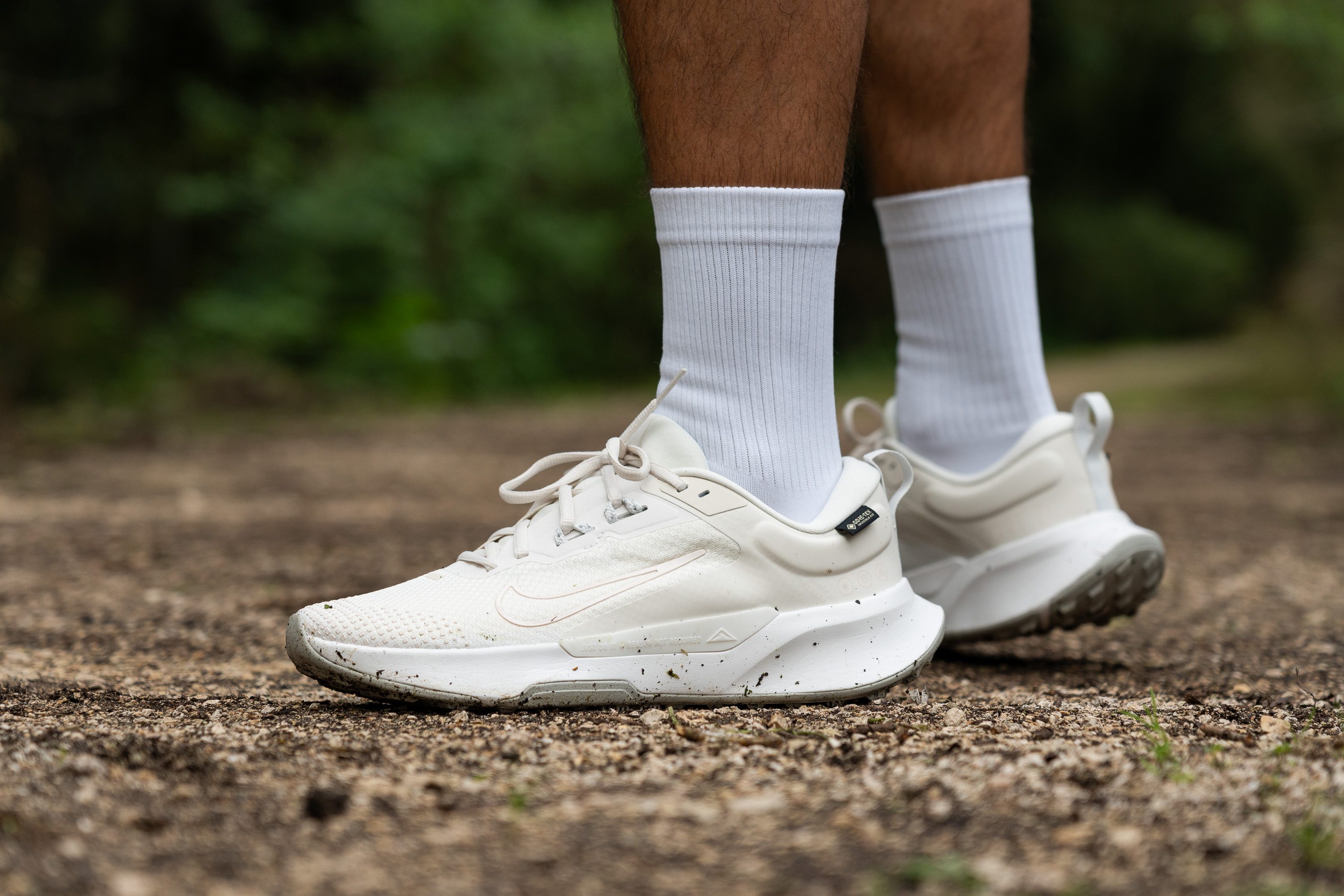
Who should NOT buy
We've concluded that the Juniper Trail 2 GTX might not be the best pick for every runner, particularly due to its midsole. It falls short on energy return and presents a firm ride, which becomes more noticeable on road segments than trails. In our view, the Nike Pegasus Trail 4 GTX might serve better, offering a plushier experience.
Moreover, we don't recommend this model for those who need a grippy outsole. Our testing revealed that its traction doesn't quite stand out at all. For superior grip, especially for mixed or purely trail adventures, we found the Hoka Challenger 7 GTX (door-to-trail) and the Salomon Speedcross 6 GTX (trail) to be much better choices.
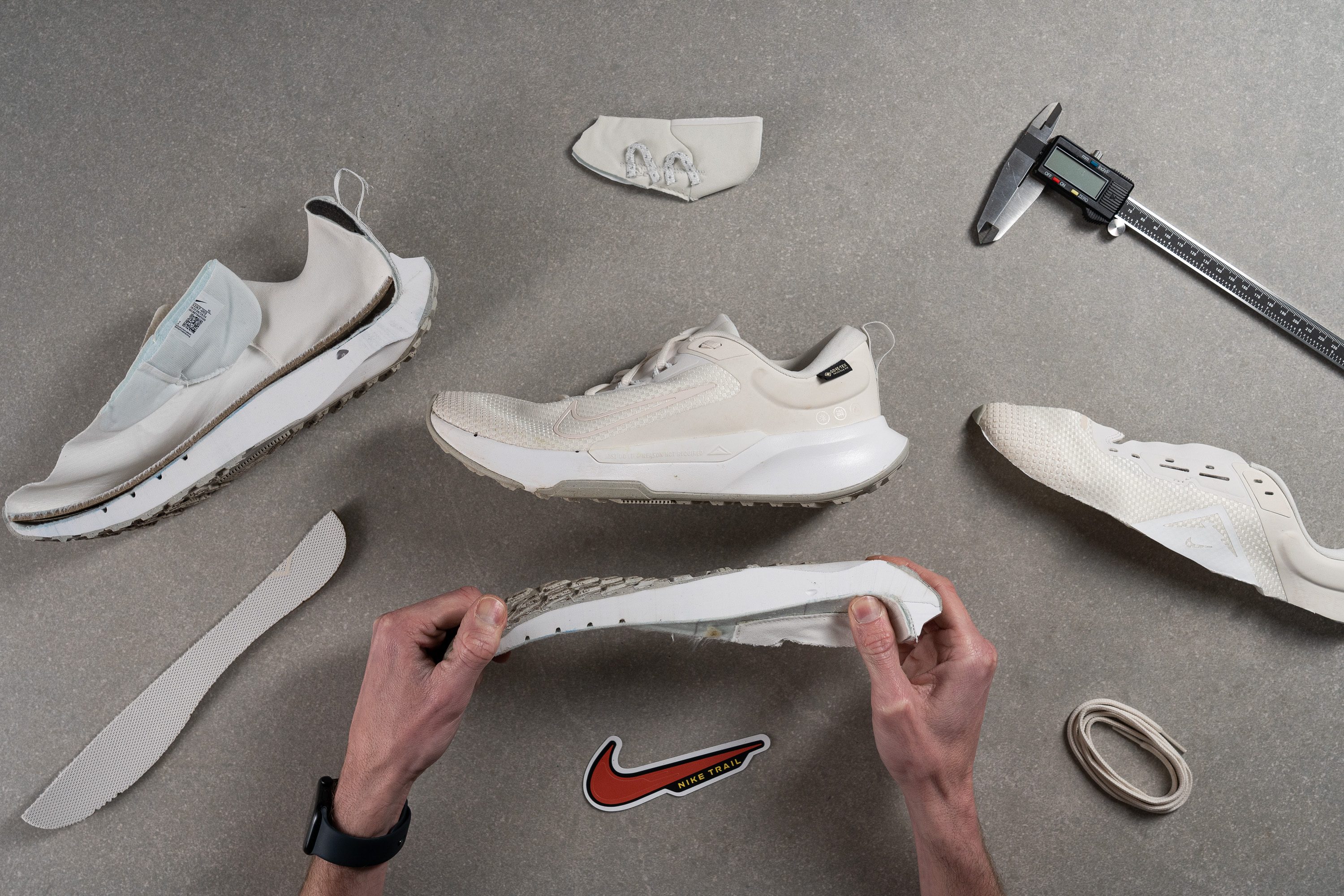
Cushioning
Heel stack
Our caliper measured the heel at a generous 34.5 mm, cushioned enough to comfortably accommodate even the heaviest heel strikers on rugged trails.
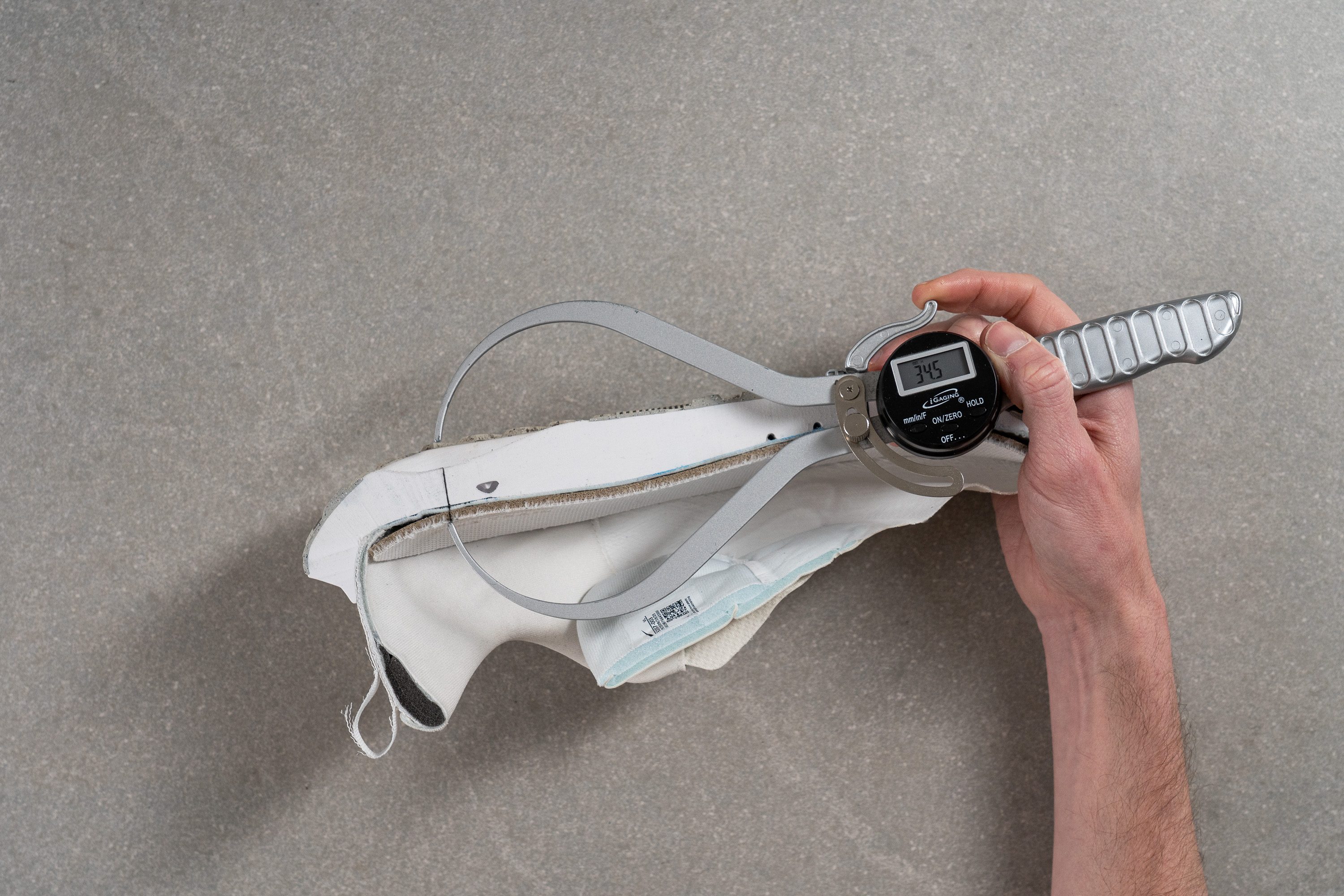
| Juniper Trail 2 GTX | 34.5 mm |
| Average | 32.6 mm |
Forefoot stack
Our measurements of the forefoot revealed a thickness of 24.3 mm—perfectly suitable for short to medium distance runs. Yet, for long runs exceeding 2 hours, forefoot strikers might seek additional foam.
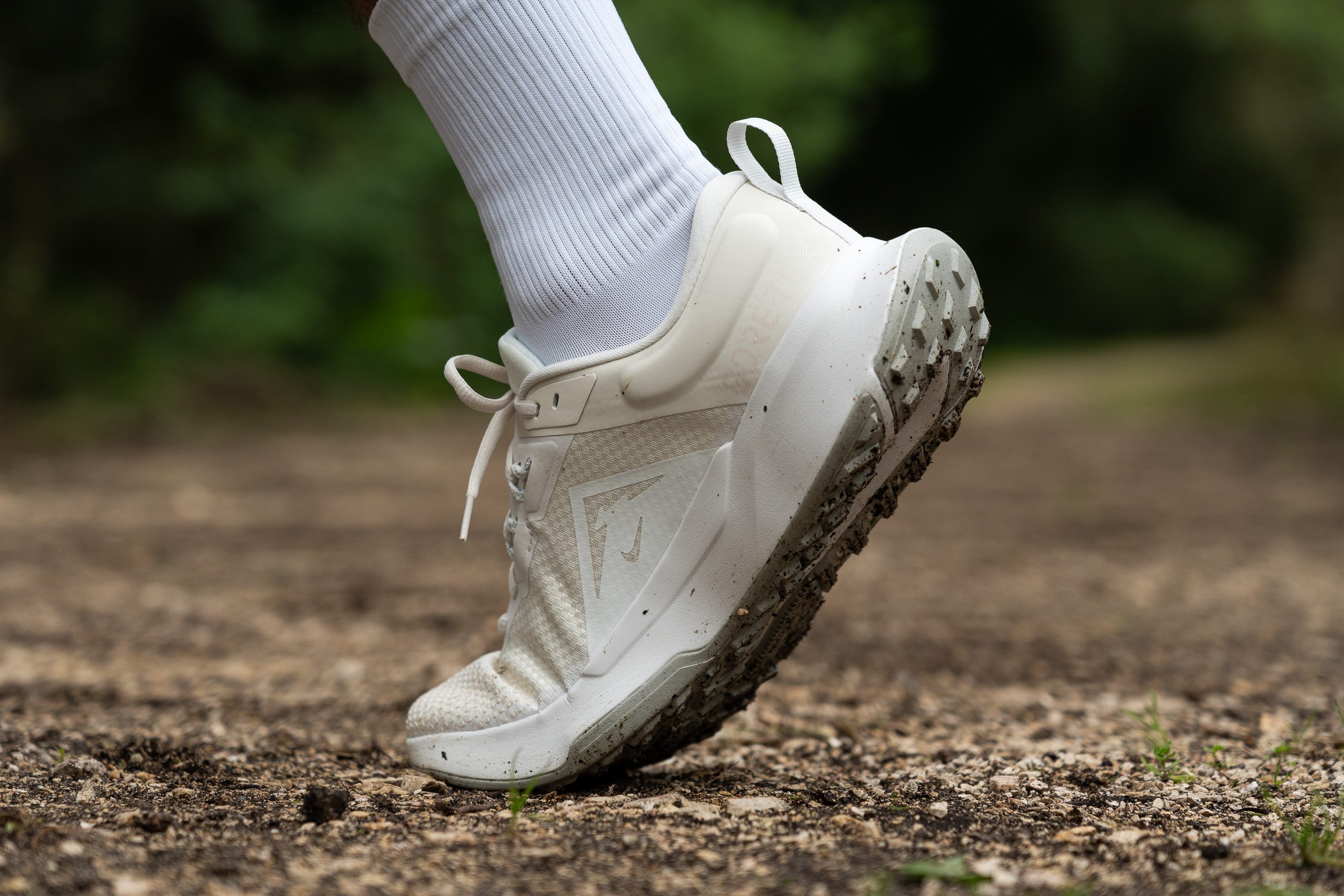
In such cases, we suggest opting for a more cushioned option, like the Hoka Speedgoat 5 GTX.
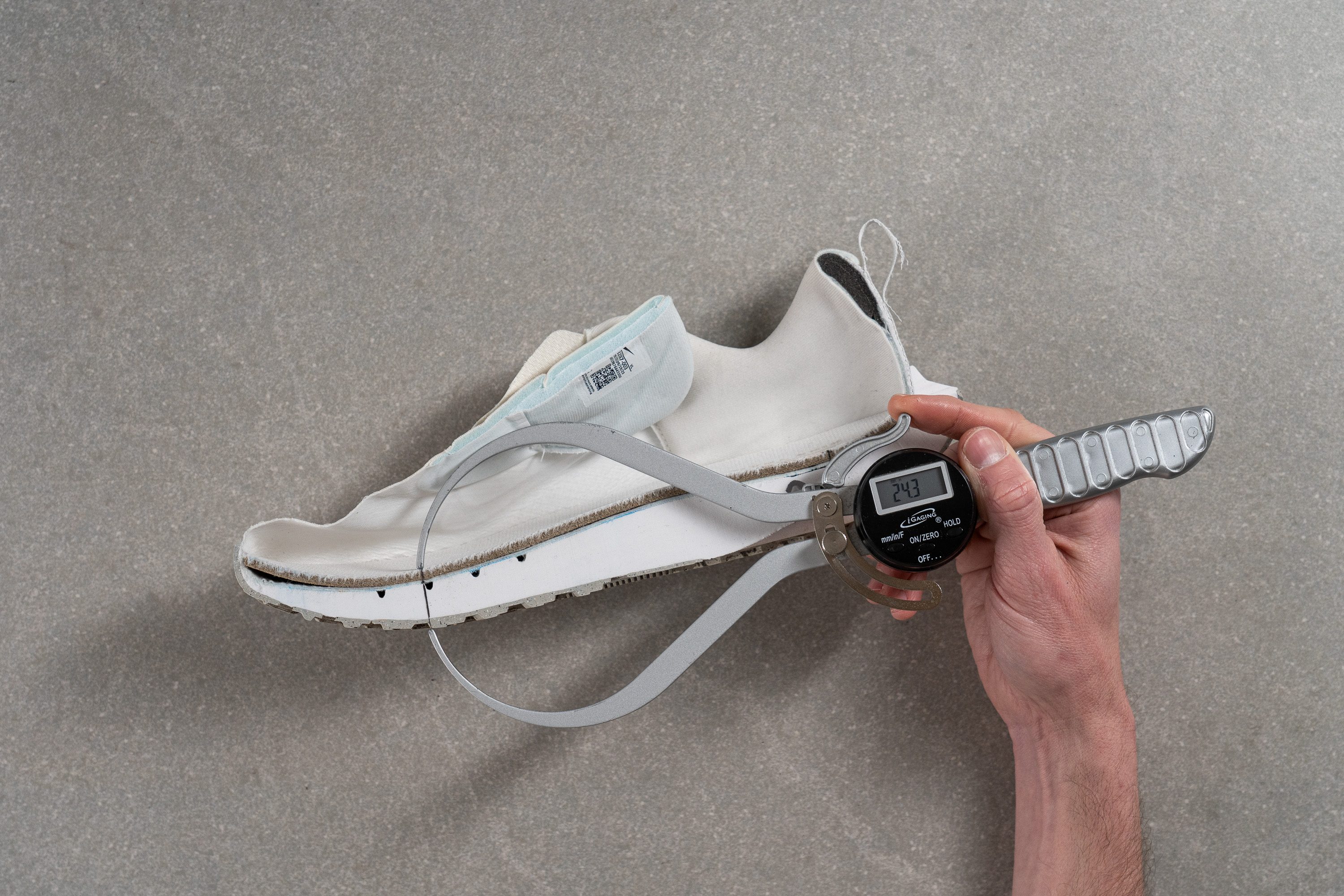
| Juniper Trail 2 GTX | 24.3 mm |
| Average | 25.1 mm |
Drop
The advertised 9-mm drop aims to cater to various footstrikes, typical of shoes in the 8-10 mm range.
Through our meticulous measurements, we discovered an actual drop of 10.2 mm, which almost feels the same as 9 mm. However, like many entry-level models, it slightly favors heel strikers.
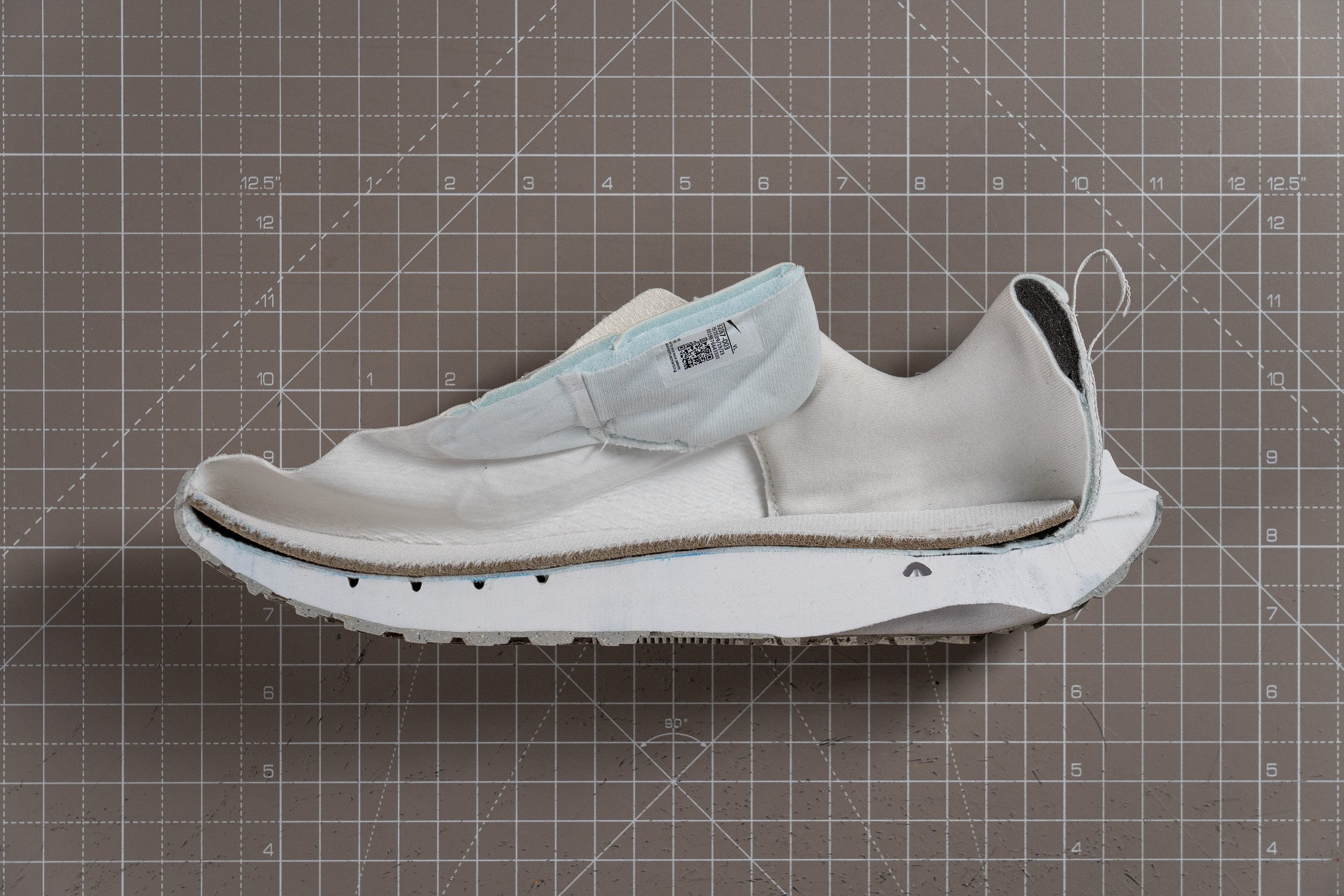
| Juniper Trail 2 GTX | 10.2 mm |
| Average | 7.6 mm |
Midsole softness
Transitioning to the midsole, a heads-up from the get-go—it presents a firm ride, clocking in at 30.3 HA. Far from plush, the EVA-based foam, especially when coupled with the lugs, delivers a ride firmer than anticipated.
This isn't a downside, as many runners appreciate this firm feel, which also translates to added stability. However, our role here is to ensure you're informed with real data, so you don't end up with gear that misses the mark on your expectations or needs.
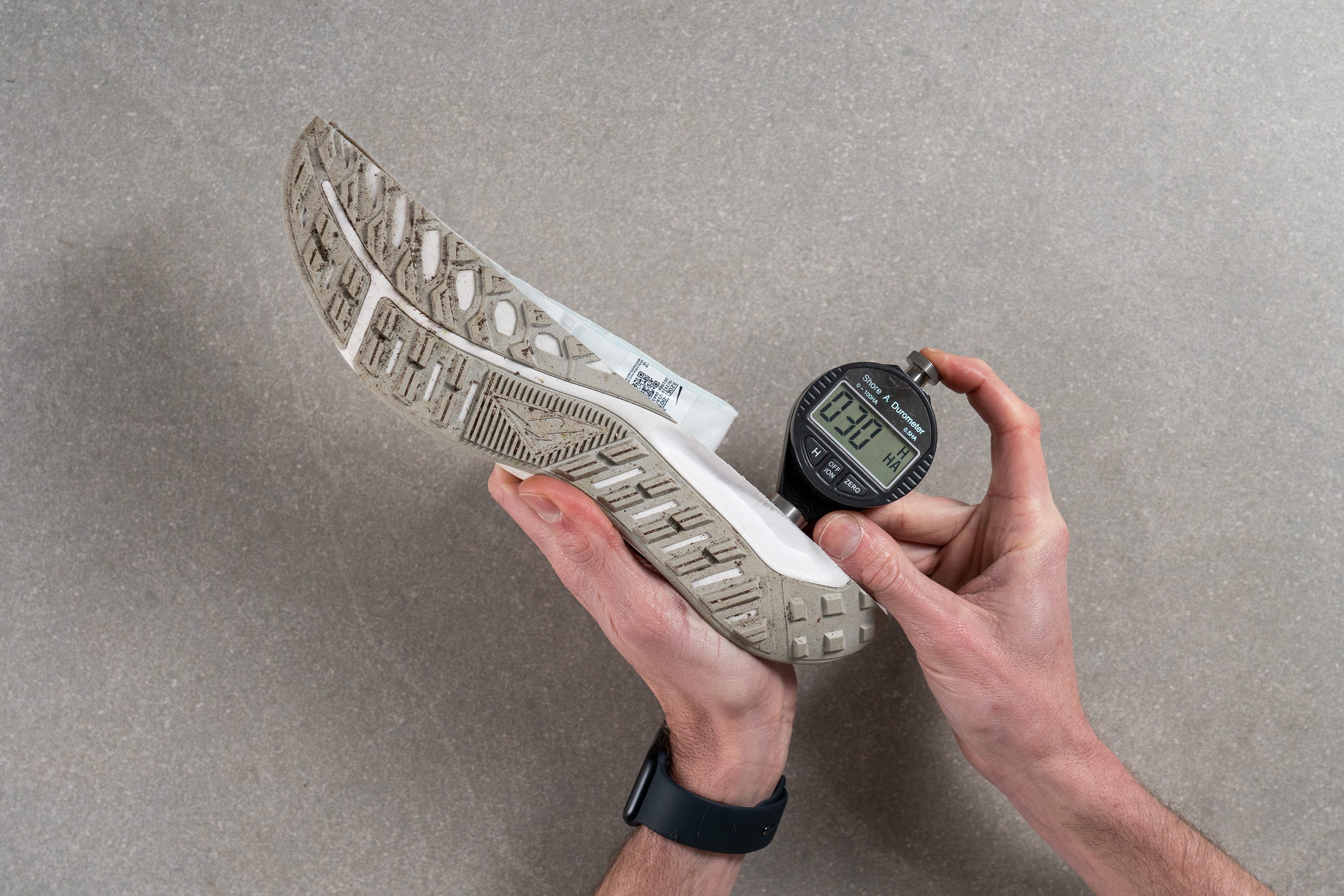
| Juniper Trail 2 GTX | 30.3 HA |
| Average | 22.0 HA |
Size and fit
Size
Nike Juniper Trail 2 GTX fits true to size (36 votes).
Internal length
| Juniper Trail 2 GTX | 272.0 mm |
| Average | 269.0 mm |
Width / Fit
Exploring the shoe, we eagerly took measurements, especially after feeling the roominess during our test runs with the Juniper Trail 2 GTX—a surprising feature for any Nike kick!
True to our sense, at 99.4 mm, it offers ample room, making it an excellent option even for those with moderately wide feet.
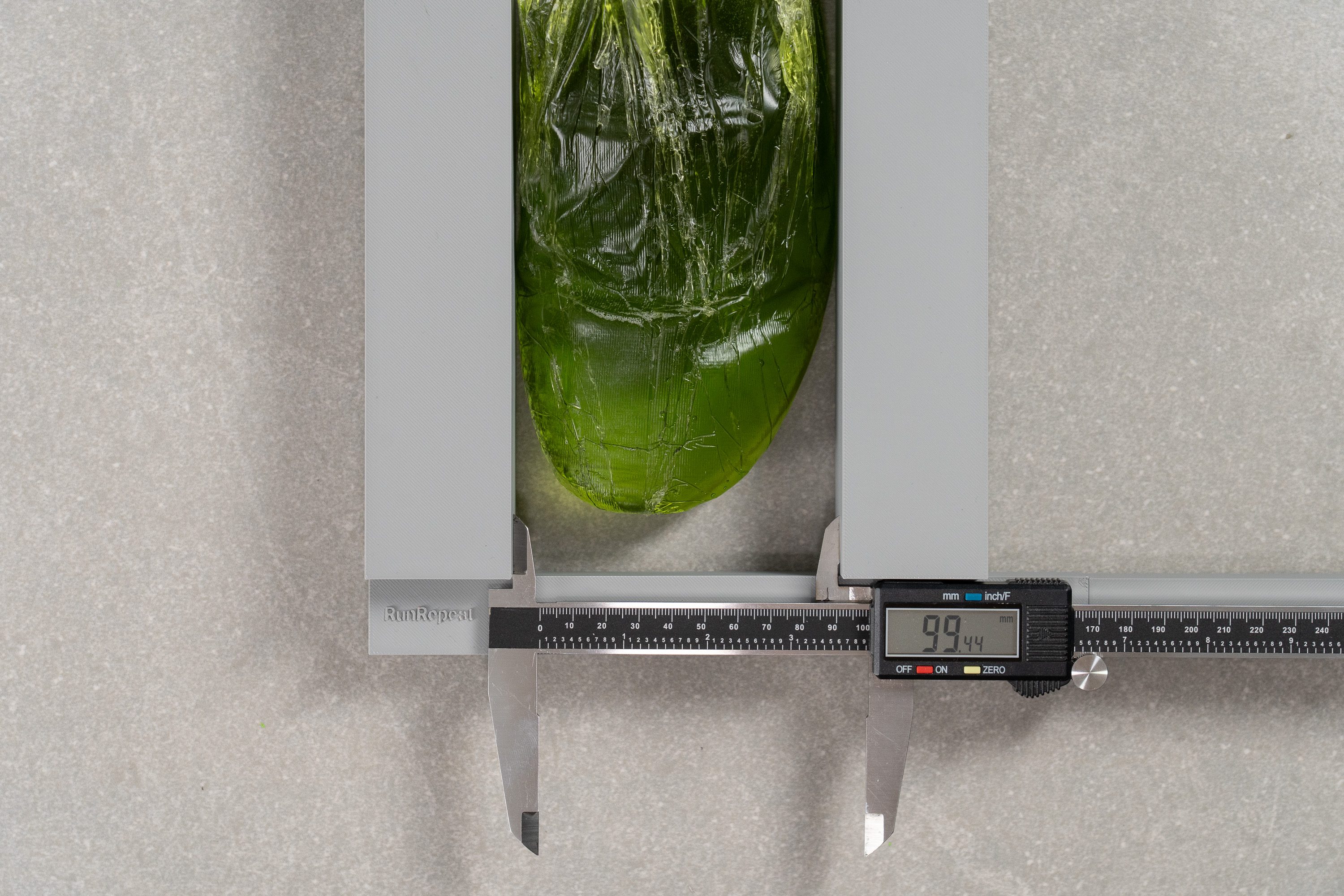
| Juniper Trail 2 GTX | 99.4 mm |
| Average | 95.6 mm |
Toebox width
Our subsequent measurement unveiled the toebox's tapering, a crucial aspect in assessing overall roominess. Impressively, at 76.7 mm, the shoe maintains its generous width!
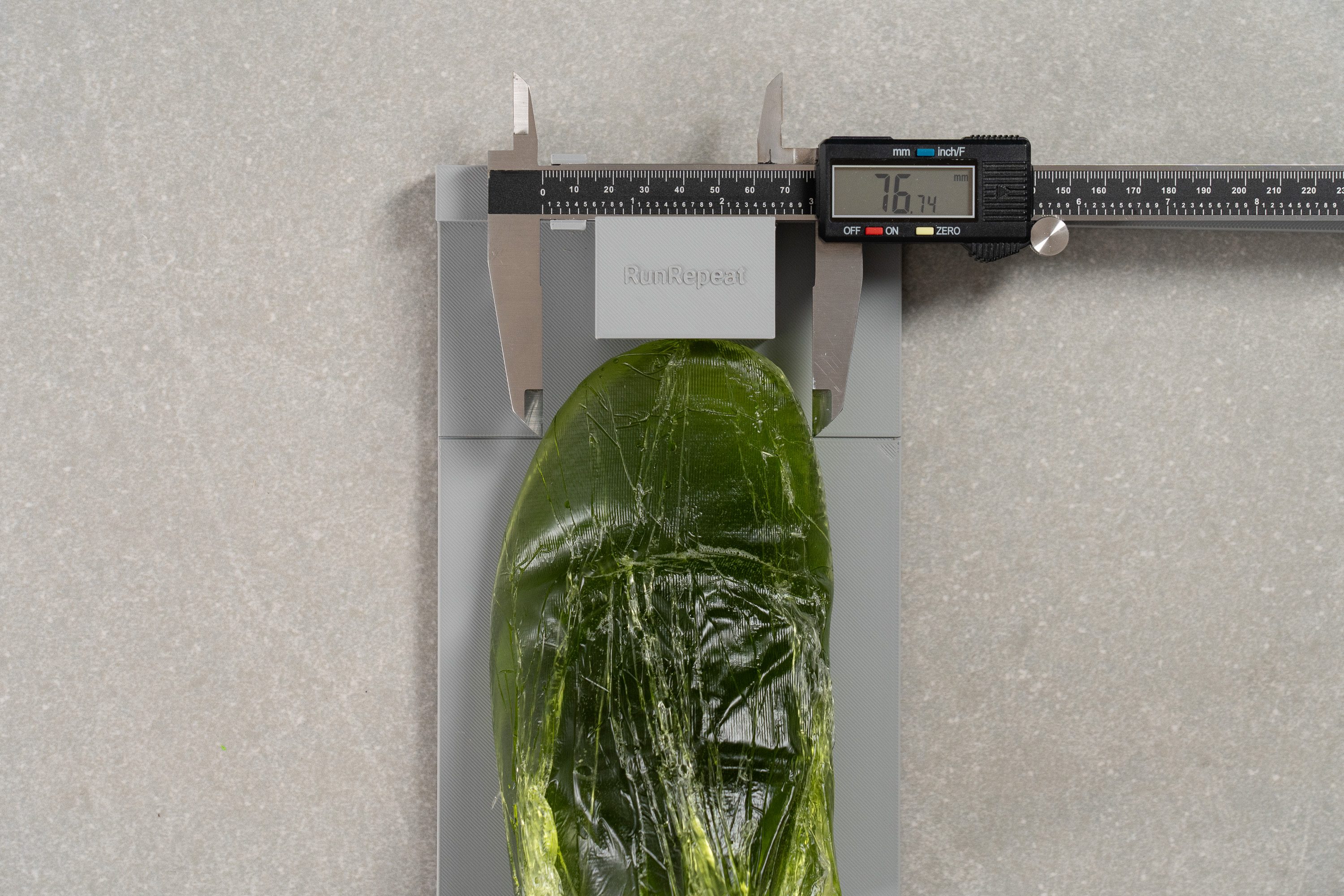
| Juniper Trail 2 GTX | 76.7 mm |
| Average | 74.6 mm |
Toebox height
Height-wise, the upper is slightly constrained, measuring 25.4 mm according to our calipers. For this reason, while it accommodates a broad forefoot, take into account that the vertical room is limited.
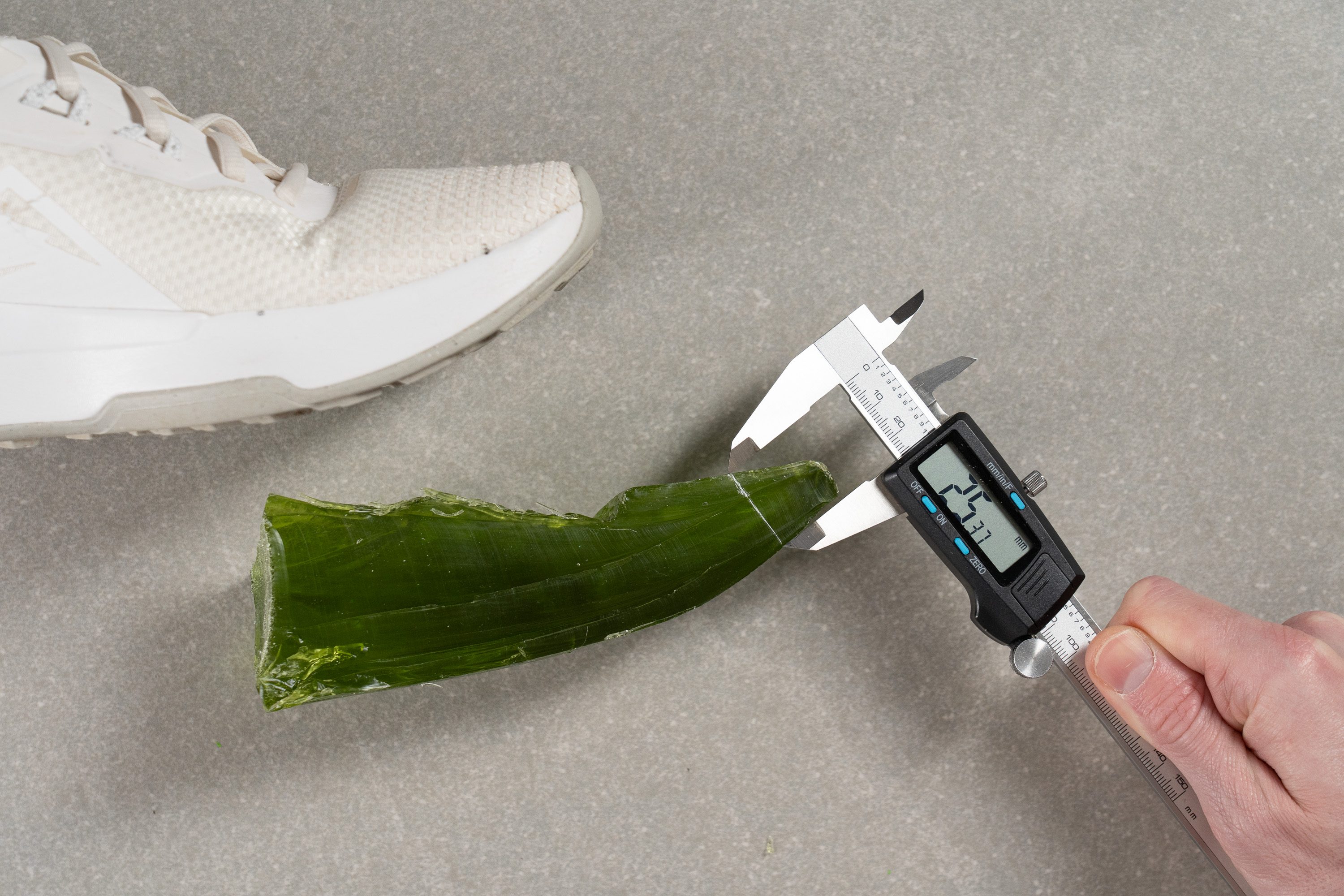
| Juniper Trail 2 GTX | 25.4 mm |
| Average | 27.0 mm |
Traction / Grip
Lug depth
The outsole sports a modestly rugged appearance, akin to a rugged road shoe.
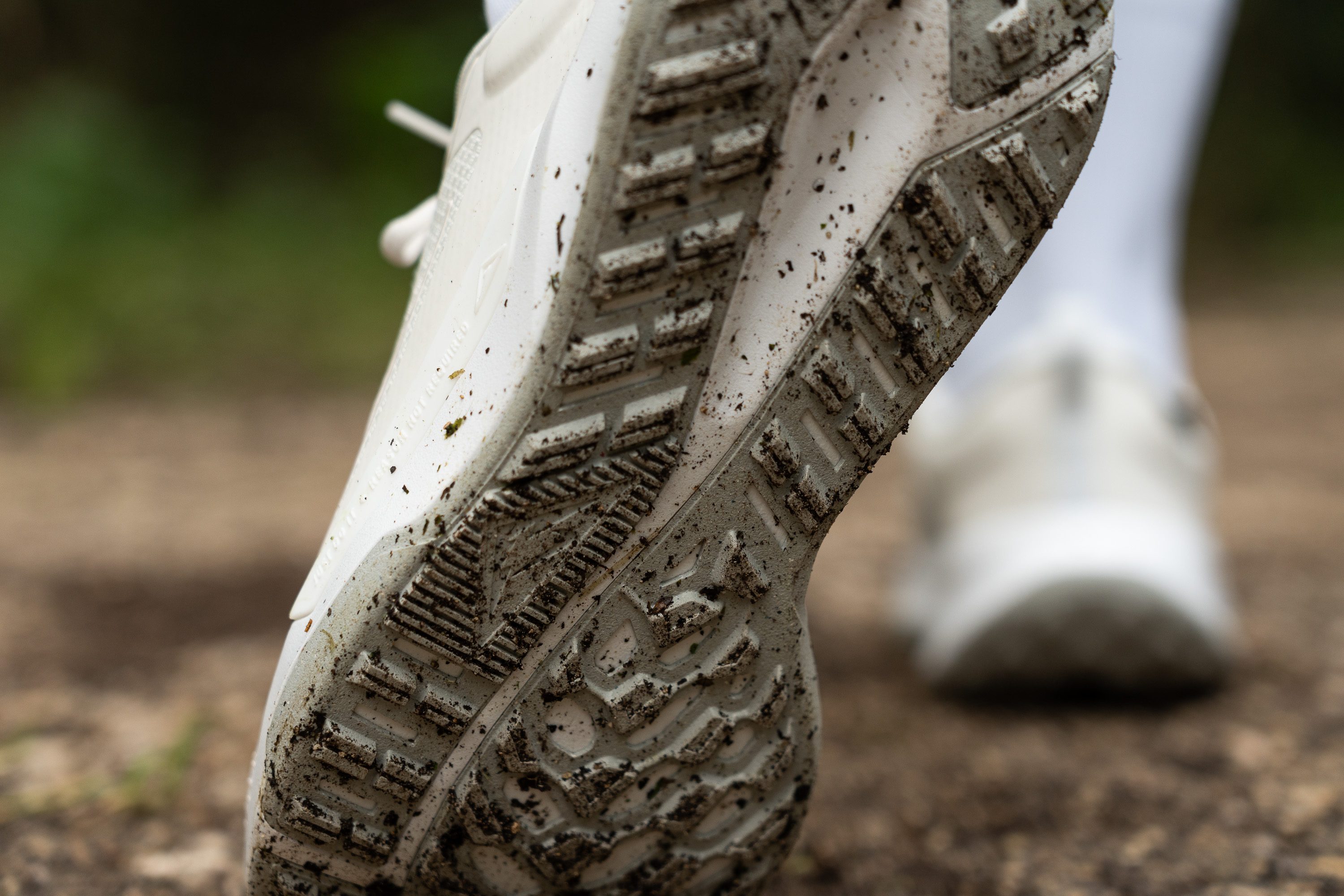
Our findings align—its 2.7-mm lugs clearly gear this shoe only for easy terrain, making it an ideal door-to-trail GTX shoe.
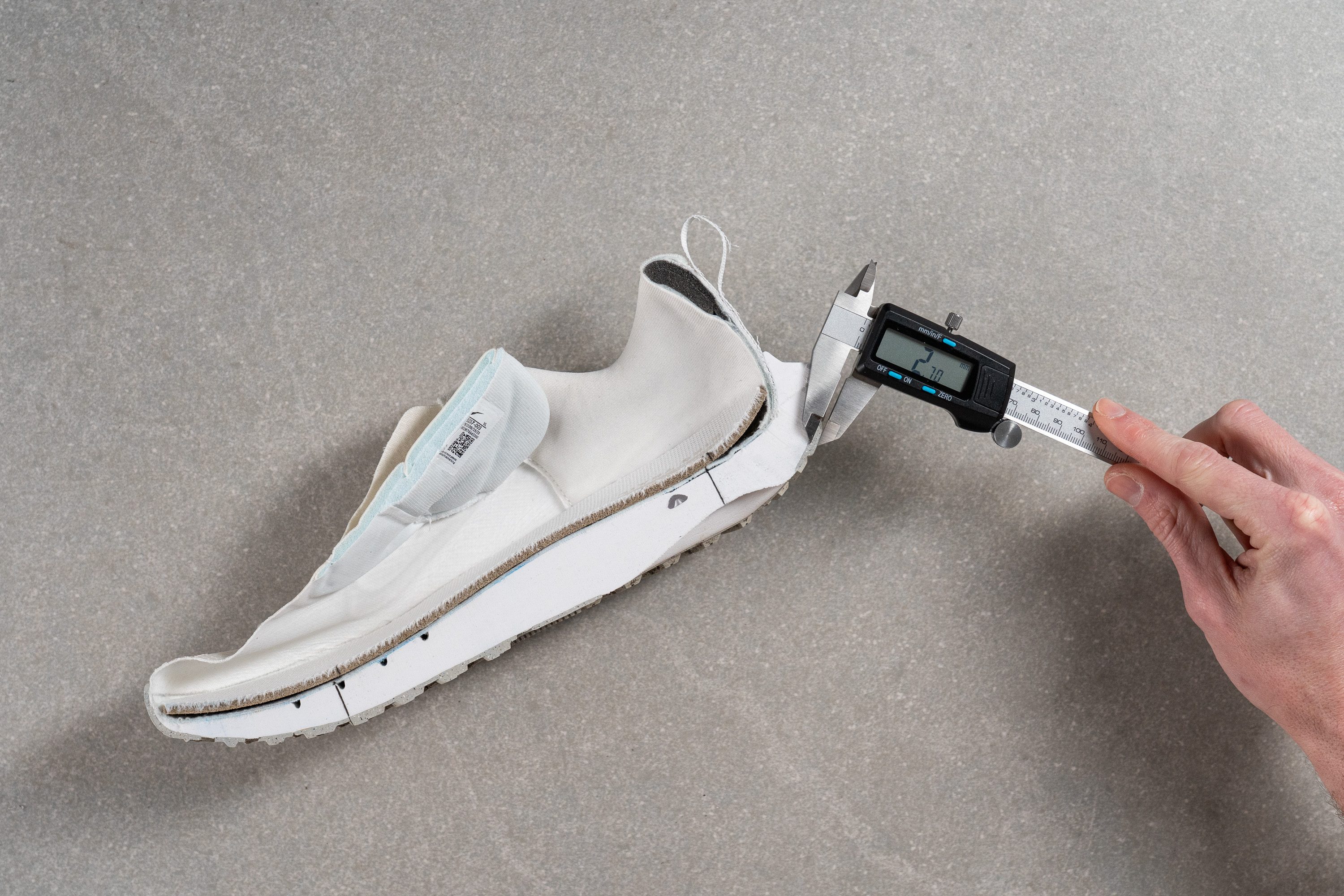
| Juniper Trail 2 GTX | 2.7 mm |
| Average | 3.5 mm |
Flexibility / Stiffness
Regarding flexibility, the shoe ranks as fairly standard, a feat achieved through the strategic outsole cutouts we identified before in this same lab review.
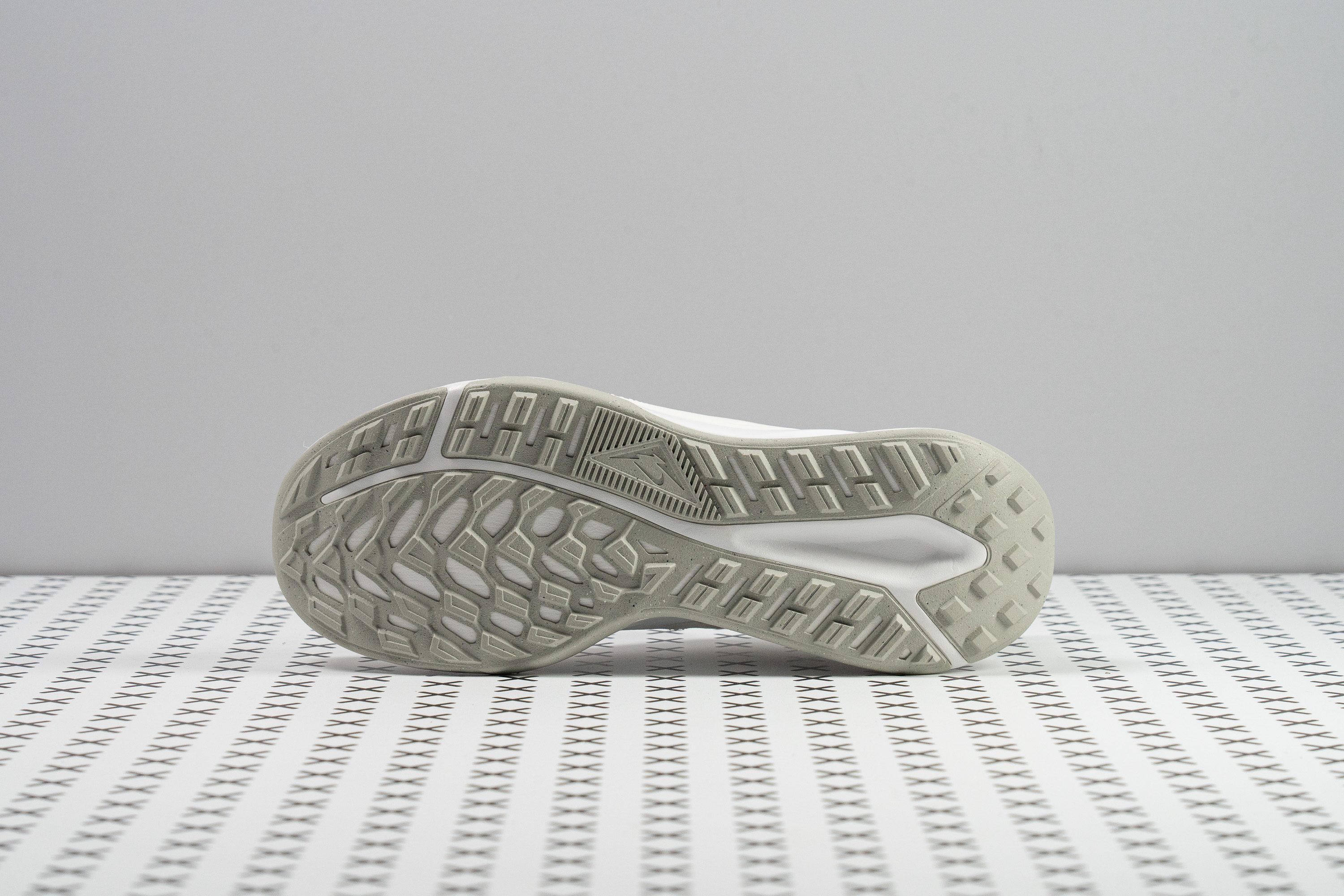
Without these cutouts, our 90-degree bend test might have classified this shoe alongside more stiff, plated trail models like the Endorphin Edge.
This test follows an older methodology, which is why you don't see recently tested shoes in the chart. Results from different methodologies can not be compared.
| Juniper Trail 2 GTX | 21.7N |
| Average | 27.1N |
Stiffness in cold (%)
After a 20-minute lab test, the GTX model of the JT2 showed minimal change in stiffness—merely a 7% uptick!
| Juniper Trail 2 GTX | 16% |
| Average | 32% |
Weight
Weighing in at 10.3 oz or 293g on our scale, the Juniper Trail 2 GTX impressively shaves off 4% of the weight compared to its standard counterpart, an exceptional feat.
Gore-Tex models typically carry a 5-10% weight penalty, yet this shoe defies that. This also sheds light on Nike's $45 premium for this GTX version.
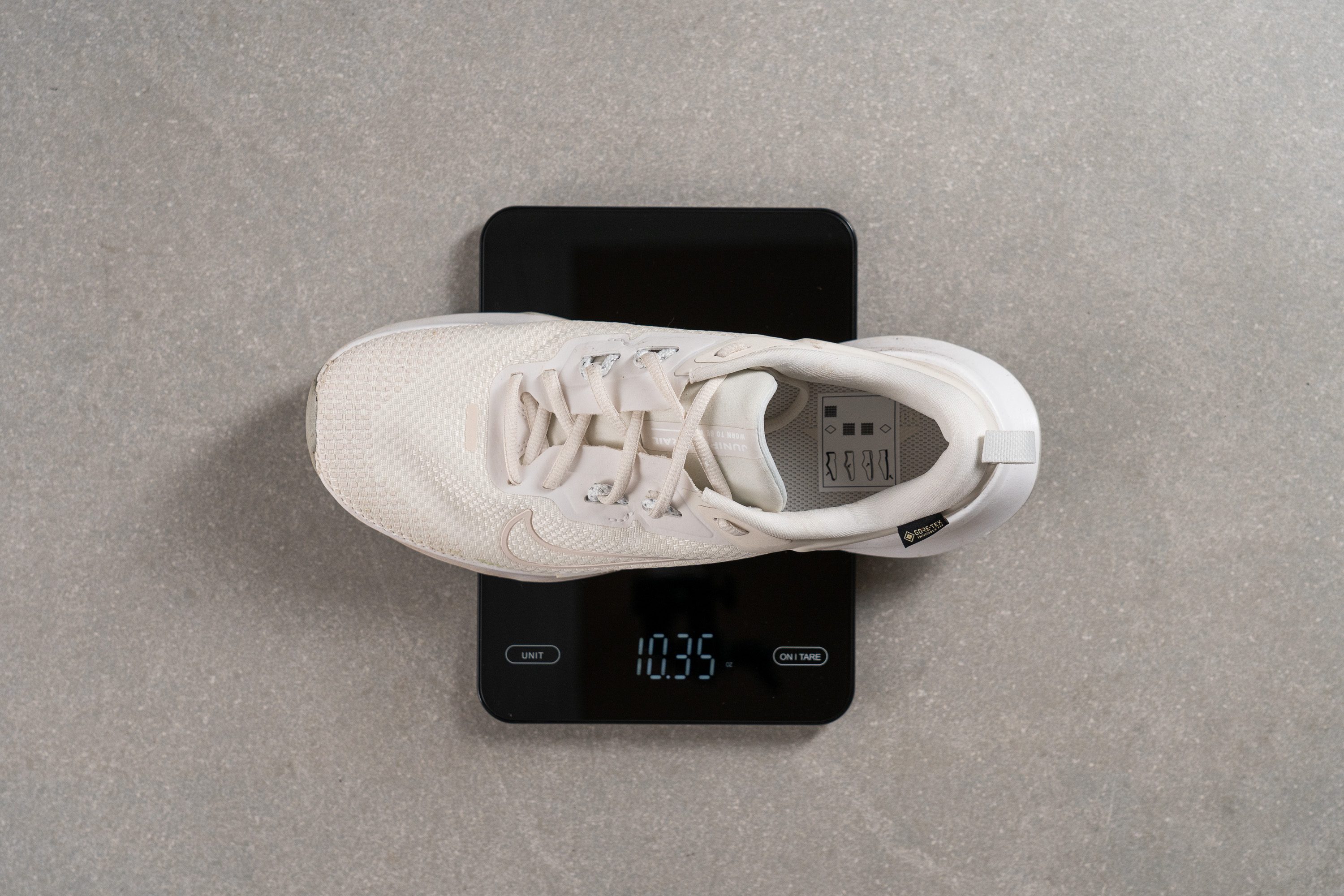
| Juniper Trail 2 GTX | 10.3 oz (293g) |
| Average | 10.2 oz (289g) |
Breathability
Gore-Tex is a waterproof yet breathable membrane, that works repelling liquid while letting water vapor escape—perfect for keeping your feet always dry.
Yet, our lab tests consistently show GTX footwear tends to lag in ventilation, and the Juniper Trail 2 GTX is no exception, scoring 2/5 in our evaluation.
Our light test revealed the toebox and parts of the medial zone offer some air flow, but the shoe's design prioritizes durability and stability elsewhere.
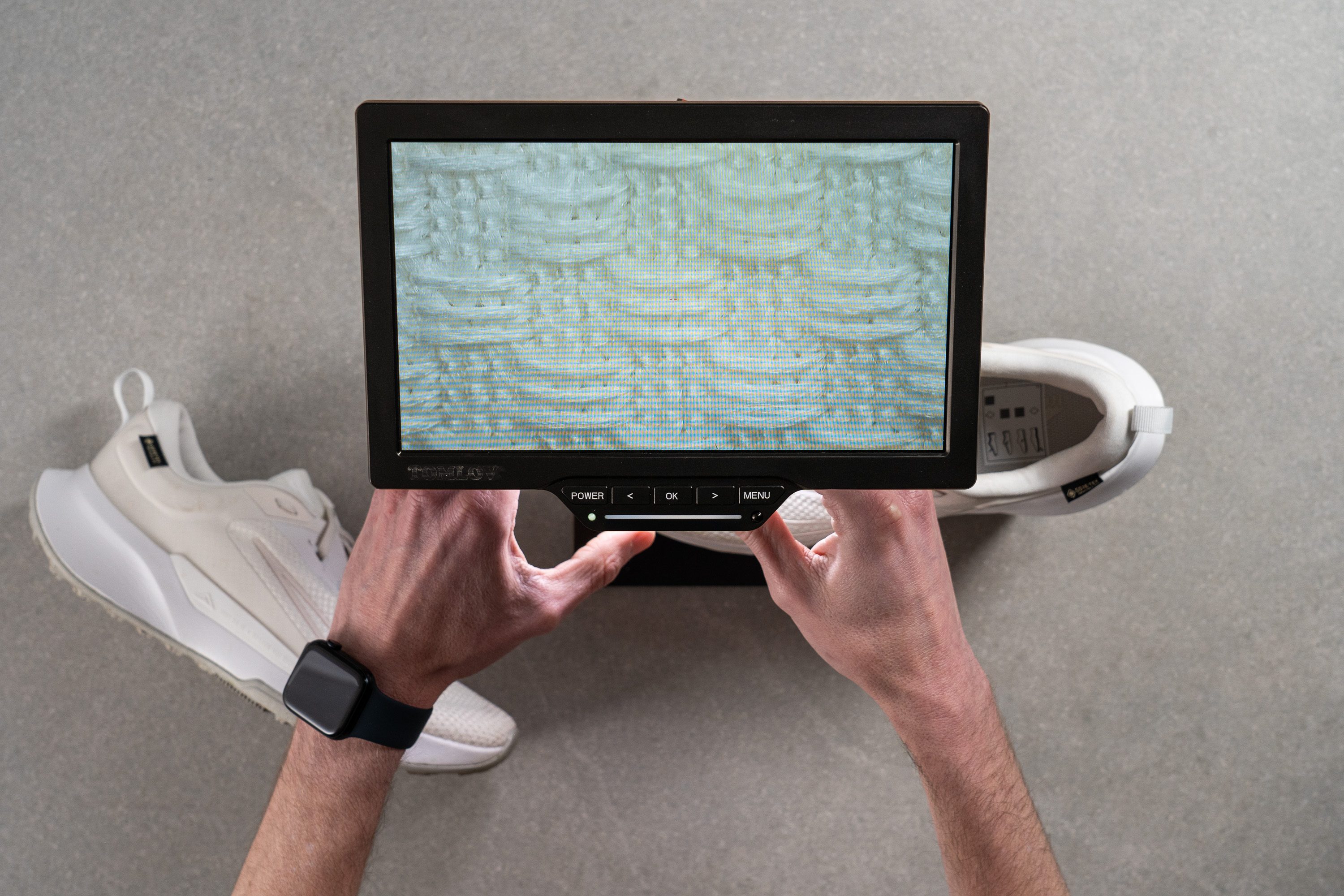
The GTX mesh is denser and thicker than the regular edition's. Under the microscope, it was clear the GTX version leaves no entry points for water in the toebox.
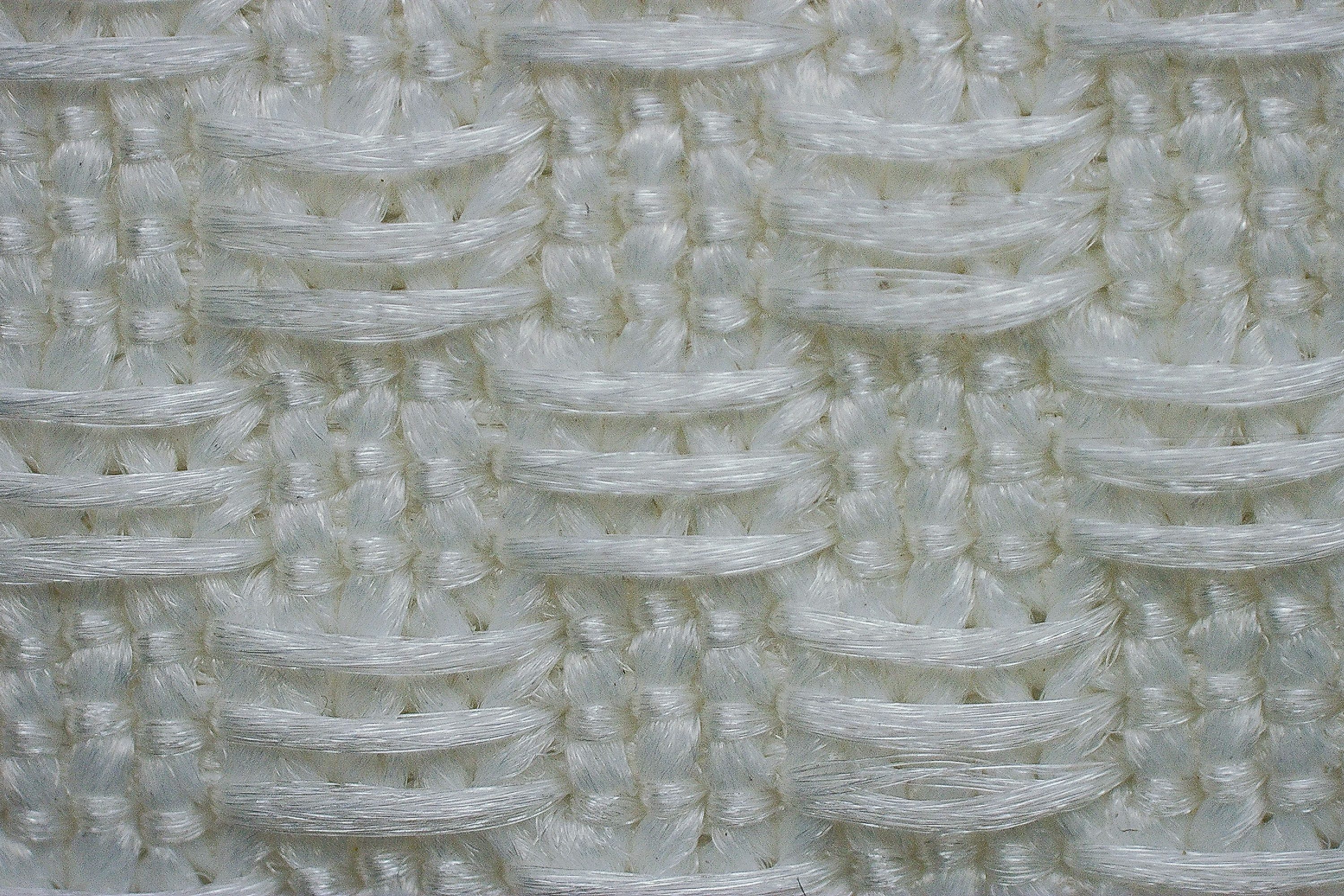
Upon manual examination, we noted the upper lacks any flexibility, but delivers ample padding and comfort, a noticeable improvement over the non-GTX model, and a needed one based on the significant $45 price increase.
| Juniper Trail 2 GTX | 2 |
| Average | 3.3 |
Stability
Lateral stability test
Shifting our focus to stability, the shoe's firmness indeed translates into a notable advantage in this department.
Beyond just the midsole, Nike has integrated various design elements that significantly enhance stability, culminating in what we consider a remarkably steady ride. Let's analyze them.
Torsional rigidity
We initiated our evaluation with the torsional rigidity of the Juniper Trail 2 GTX, assigning it a score of 4 out of 5. This indicates a certain rigidity, albeit with a touch more give than its non-GTX counterpart.
| Juniper Trail 2 GTX | 4 |
| Average | 3.6 |
Heel counter stiffness
With the updated upper, the heel counter's stiffness has become slightly more pliable, earning a score of 3/5 from us.
We see this as a significant and positive adjustment, especially considering we felt the 4/5 rigidity of the non-waterproof version was a tad excessive.
| Juniper Trail 2 GTX | 3 |
| Average | 3 |
Midsole width - forefoot
A key factor in the Juniper Trail 2's stable ride is its midsole width. Our caliper measurements revealed a notably wide dimension at 114.4 mm, enhancing (again) the shoe's overall stability.
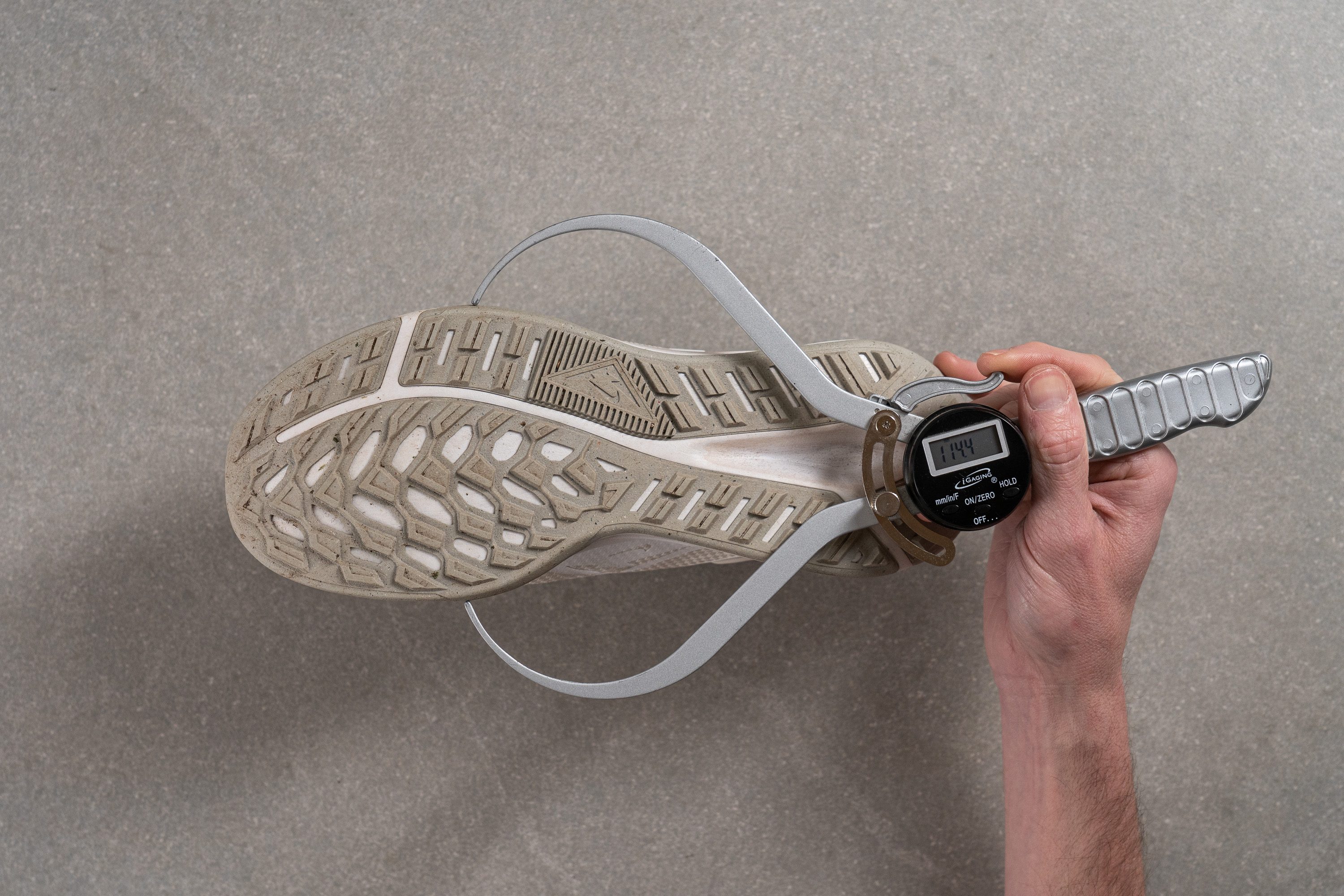
| Juniper Trail 2 GTX | 114.4 mm |
| Average | 112.8 mm |
Midsole width - heel
Exploring the heel, we encountered a generously wide area at 94.3 mm, ideal for heel strikers and even suitable for those with slight stability requirements.
However, a wide midsole always introduce a trade-off—the shoe sacrifices some nimbleness, making it more adept for easy, non-steep trails.
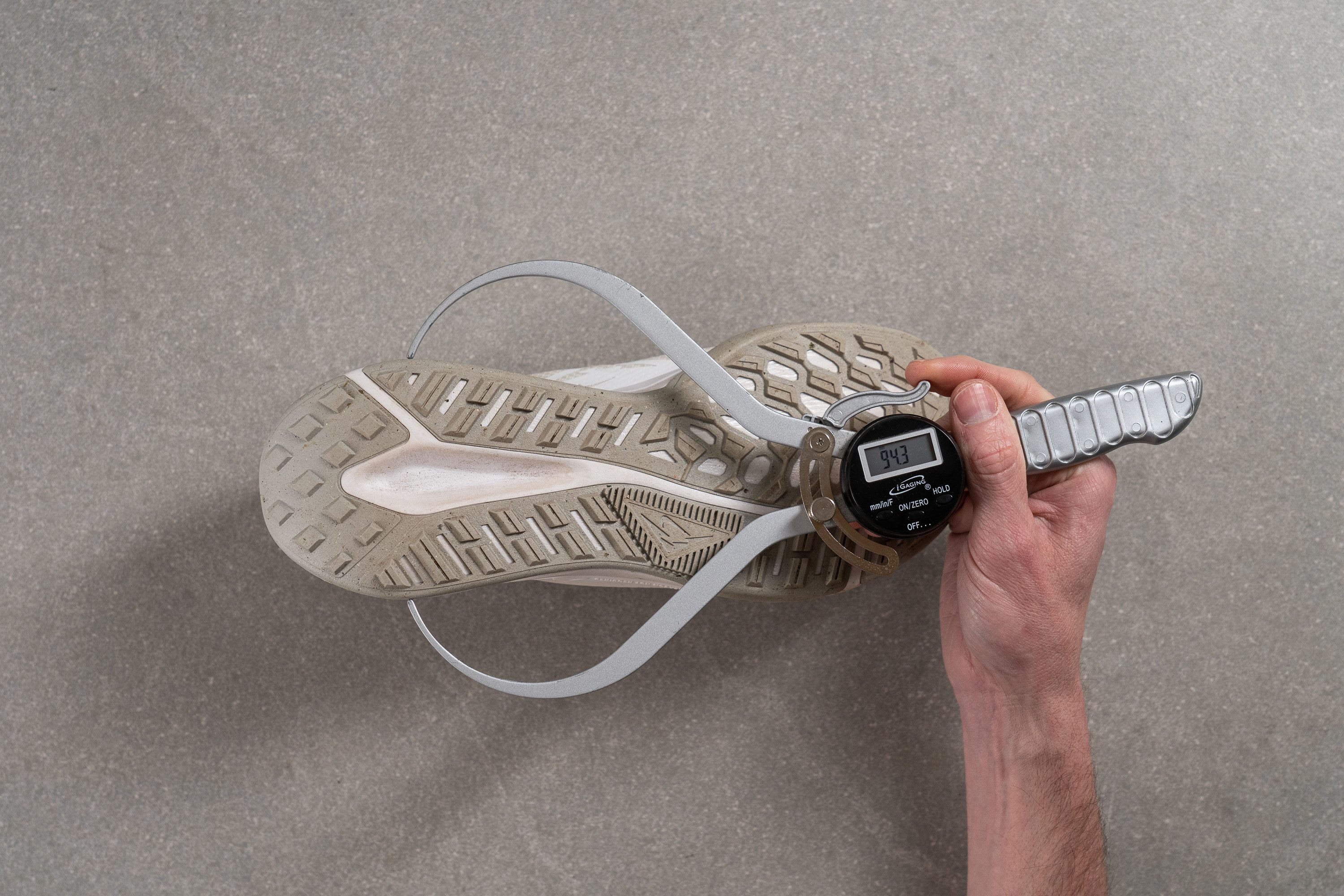
| Juniper Trail 2 GTX | 94.3 mm |
| Average | 89.9 mm |
Durability
Toebox durability
The moment we picked up the shoe in our lab, the robust reinforcements in the toebox were unmistakably palpable. With our extensive experience analyzing hundreds of shoes, we were confident the Juniper Trail 2 GTX would excel in our Dremel test.
True to our expectations, it scored an impressive 5/5, a rare feat that not many shoes achieve. This marks a significant enhancement from the standard version, which only managed a 3.
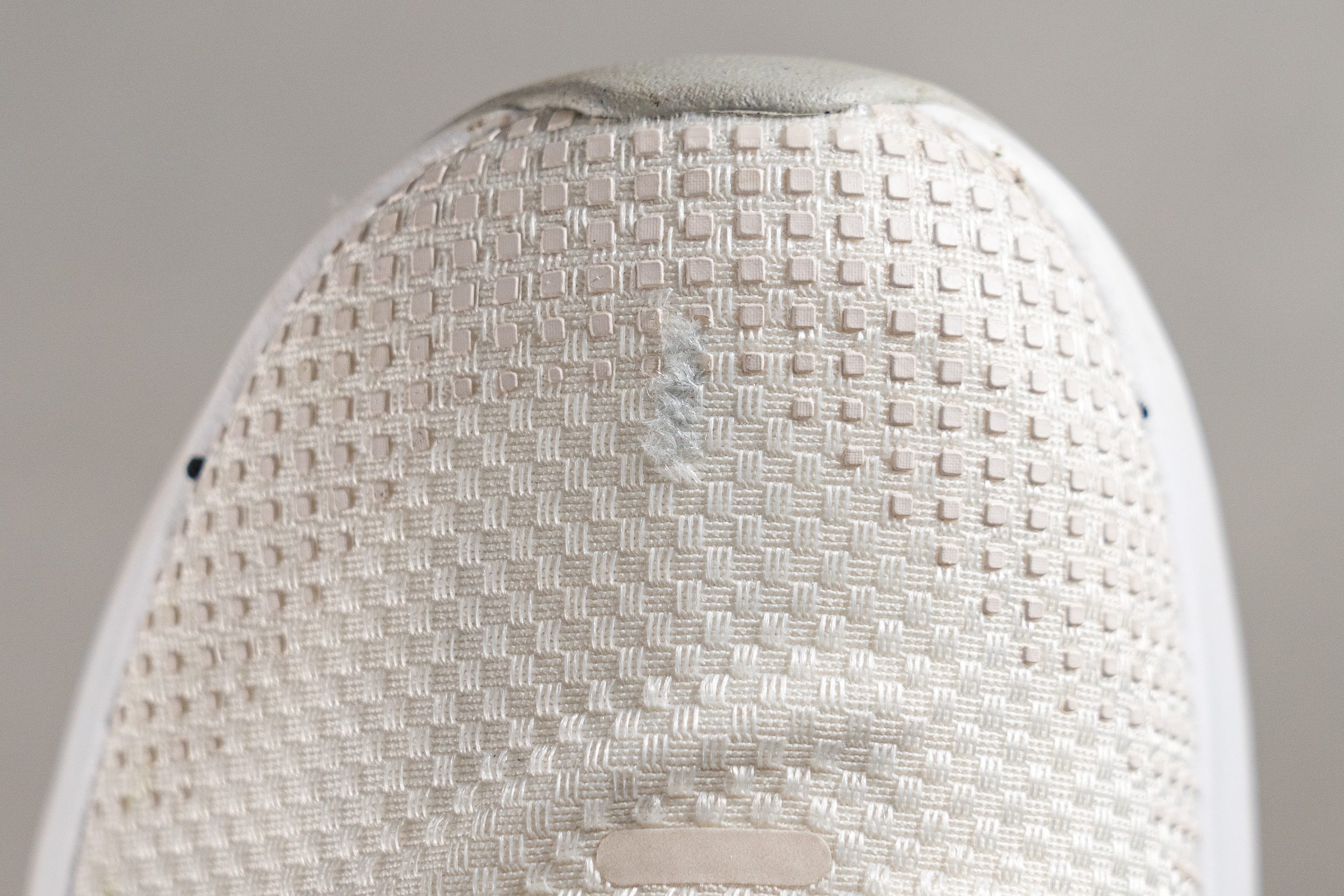
| Juniper Trail 2 GTX | 5 |
| Average | 3.1 |
Heel padding durability
Initially, the heel struck us as quite typical, akin to any daily road trainer you'd find on the market, which tempered our expectations. Yet, the Dremel test reveals all truths!
To our delight, we uncovered another top-tier performance, marking the second consecutive 5/5 rating. This outstanding result cements this GTX upper among the most durable we've encountered in our lab testing.
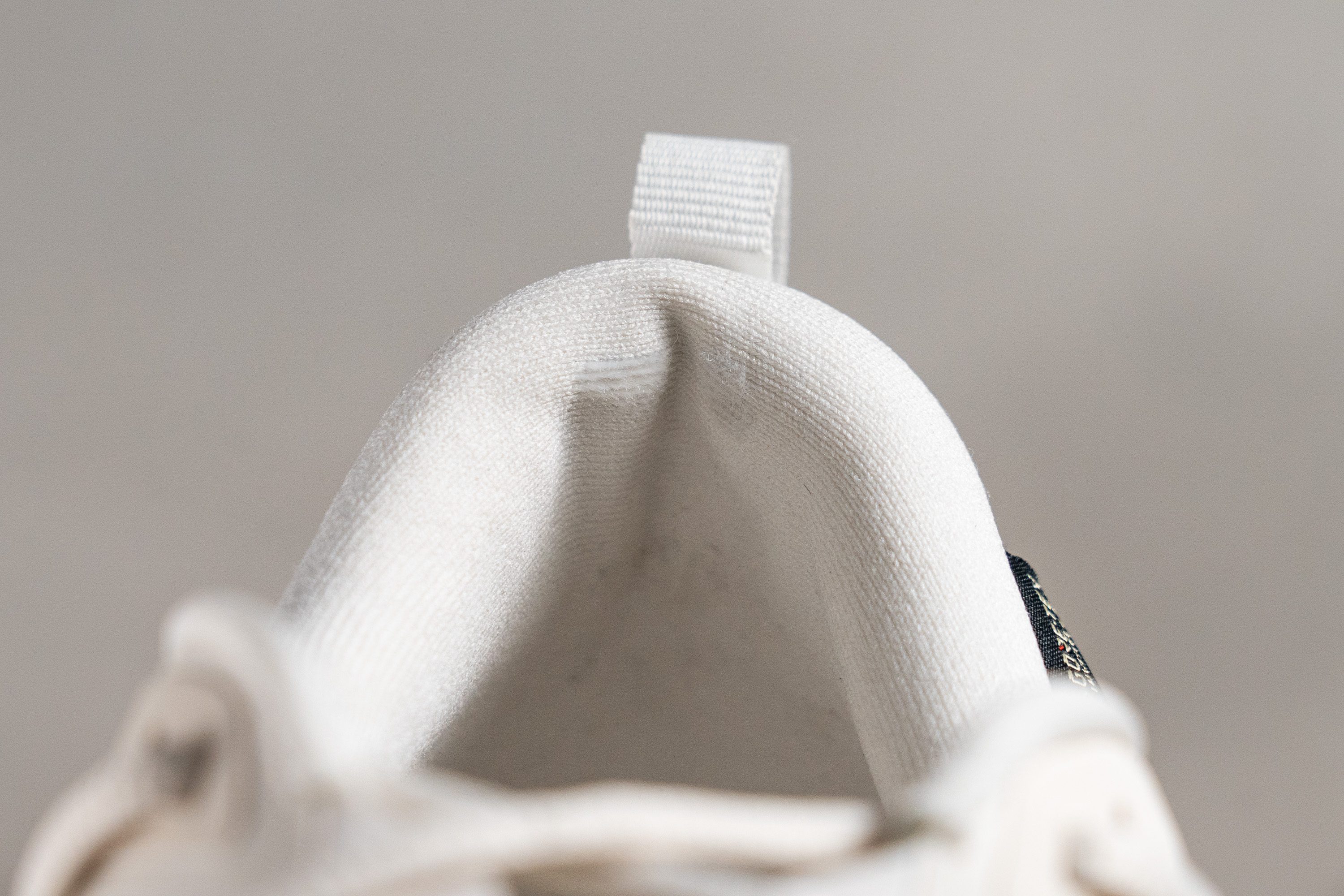
| Juniper Trail 2 GTX | 5 |
| Average | 3 |
Outsole hardness
As we turned our attention to the outsole, our anticipation was sky-high, keen to see how it would perform. The non-GTX variant had shown only moderate results, despite its tough rubber. Our Shore C durometer testing confirmed a similar hardy composition in this model, with a score of 88.9 HC.
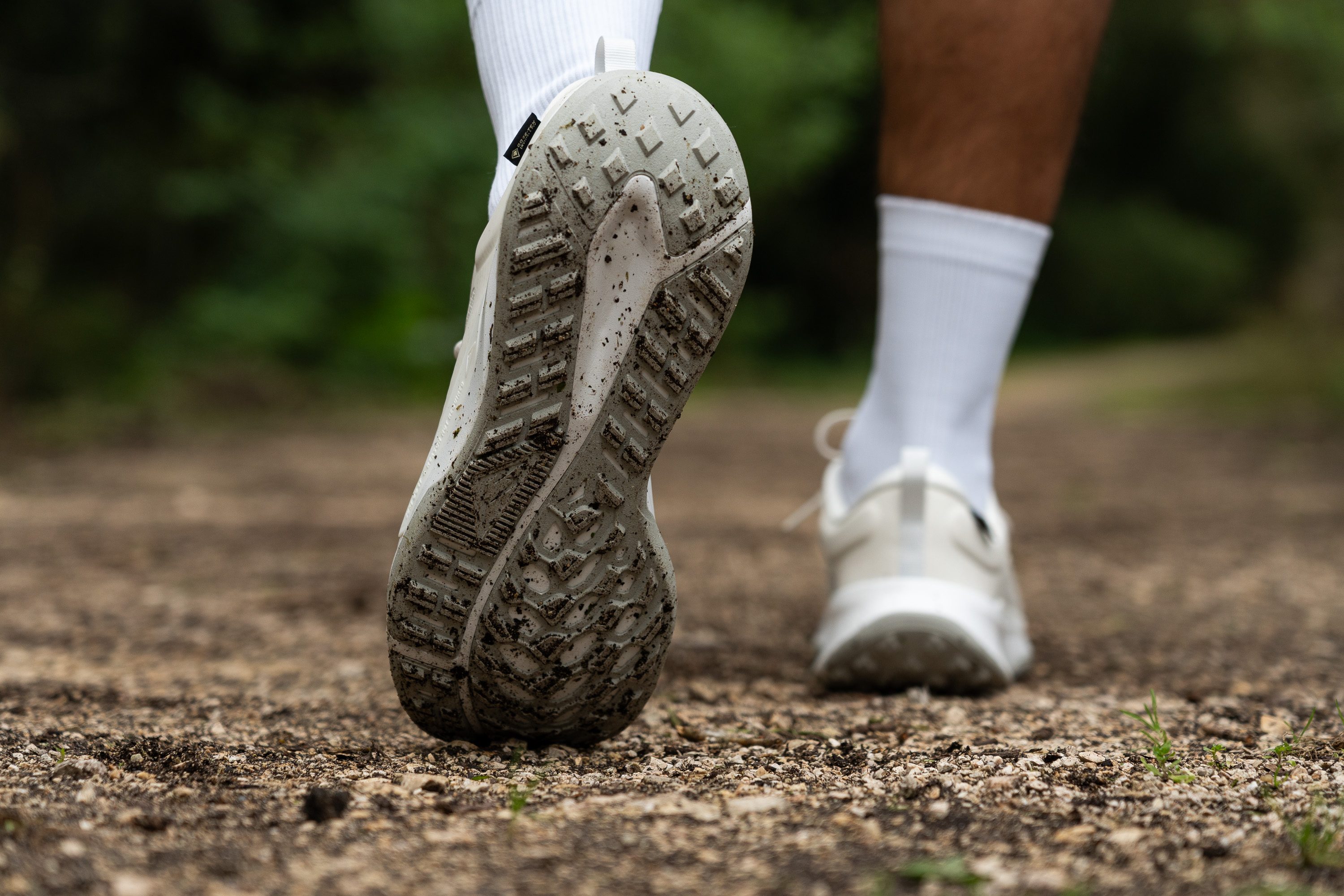
This outcome suggests the outsole leans more towards enduring wear than maximizing traction—a sentiment that resonated with our test runs. Clearly, it's not in the same league as Vibram or Continental.
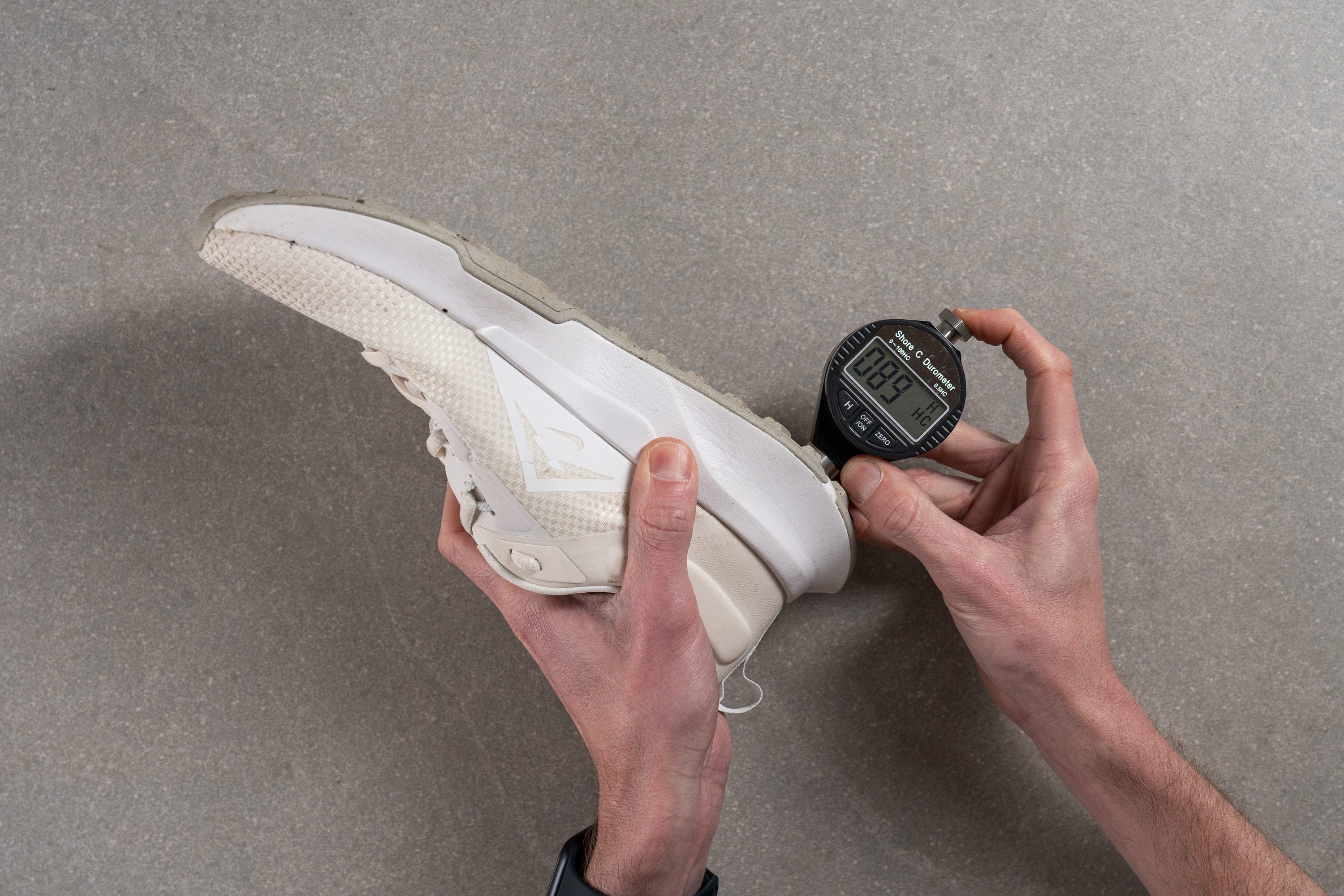
| Juniper Trail 2 GTX | 88.9 HC |
| Average | 85.8 HC |
Outsole durability
In our last Dremel challenge, we pushed the outsole to its limit.
Post-test, we observed a 0.9 mm indentation—fairly good! However, we were somewhat disappointed, expecting a tougher rubber that sacrifices grip to yield a more impressive performance.
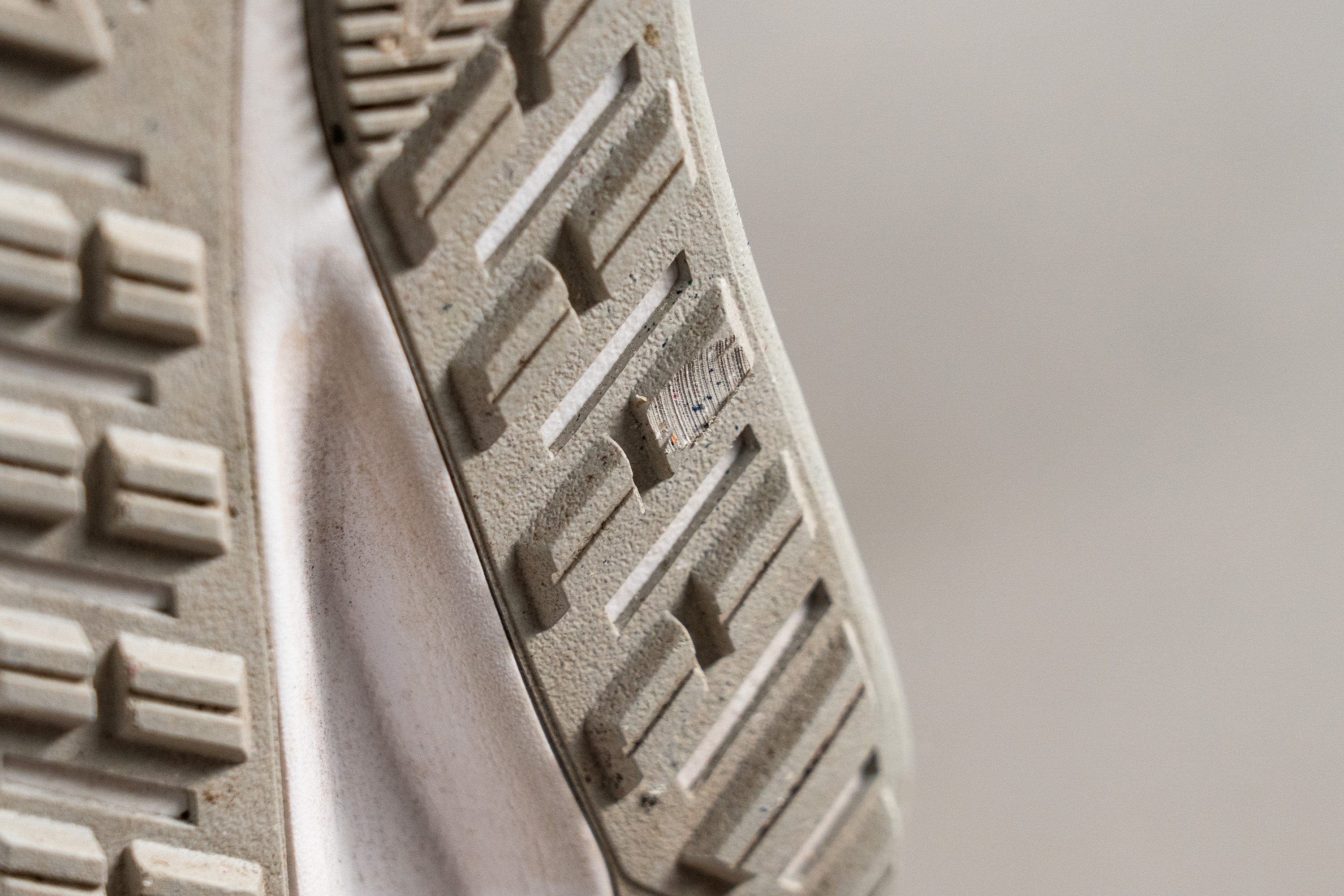
| Juniper Trail 2 GTX | 0.9 mm |
| Average | 0.9 mm |
Outsole thickness
The outsole came in at 1.9 mm of thickness, striking a good balance for this shoe—doesn't add a lot of heft yet provides ample material between the midsole and the lugs for durability.
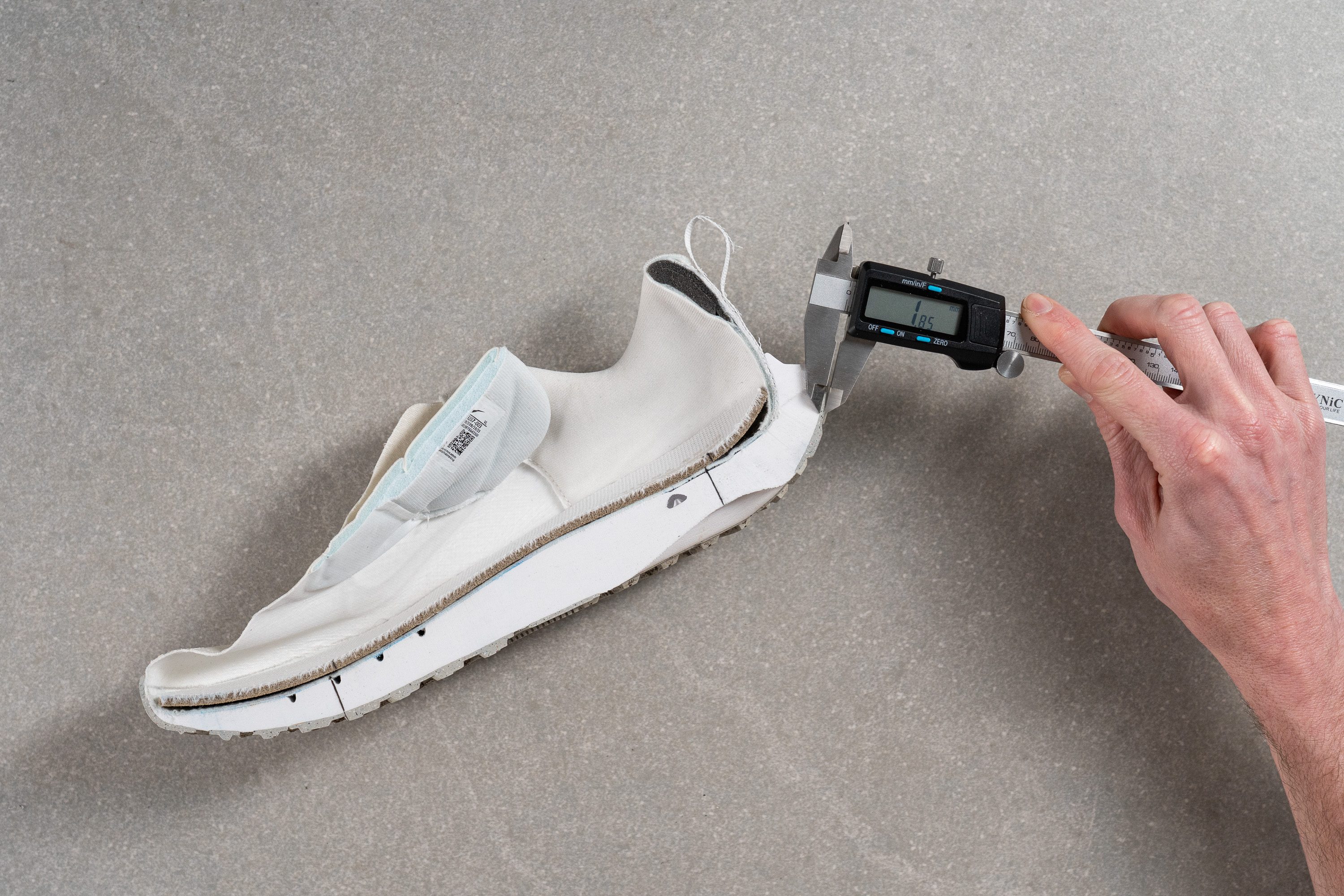
| Juniper Trail 2 GTX | 1.9 mm |
| Average | 2.2 mm |
Misc
Insole thickness
The insole, at a slightly lean 4.1 mm thickness, sits within the typical range, raising no red flags in our lab.
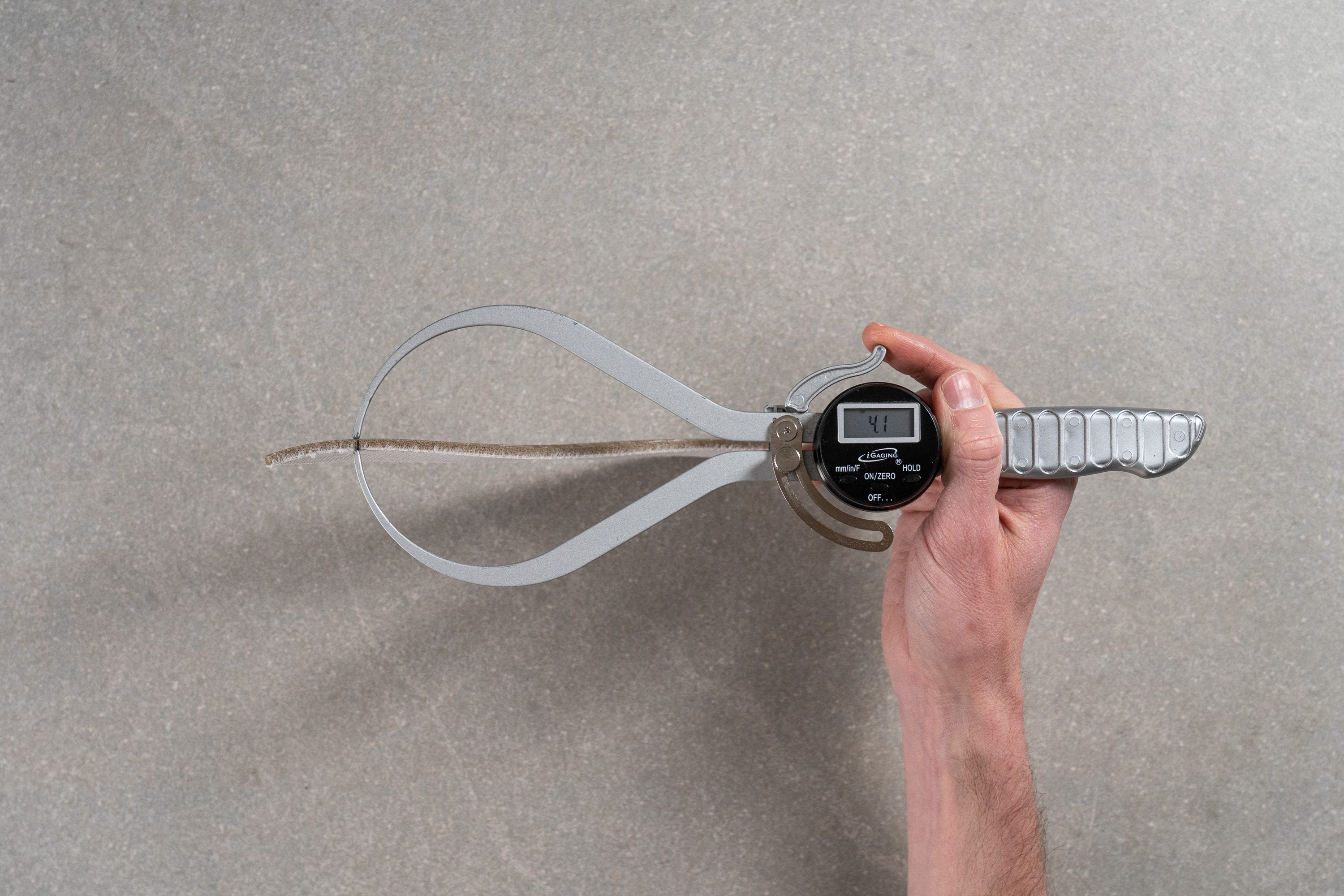
| Juniper Trail 2 GTX | 4.1 mm |
| Average | 4.7 mm |
Removable insole
We took out the insole as its not glued, so it allows for easy replacement with custom orthotics or preferred sockliners from other models, thanks to its standard size and thickness.
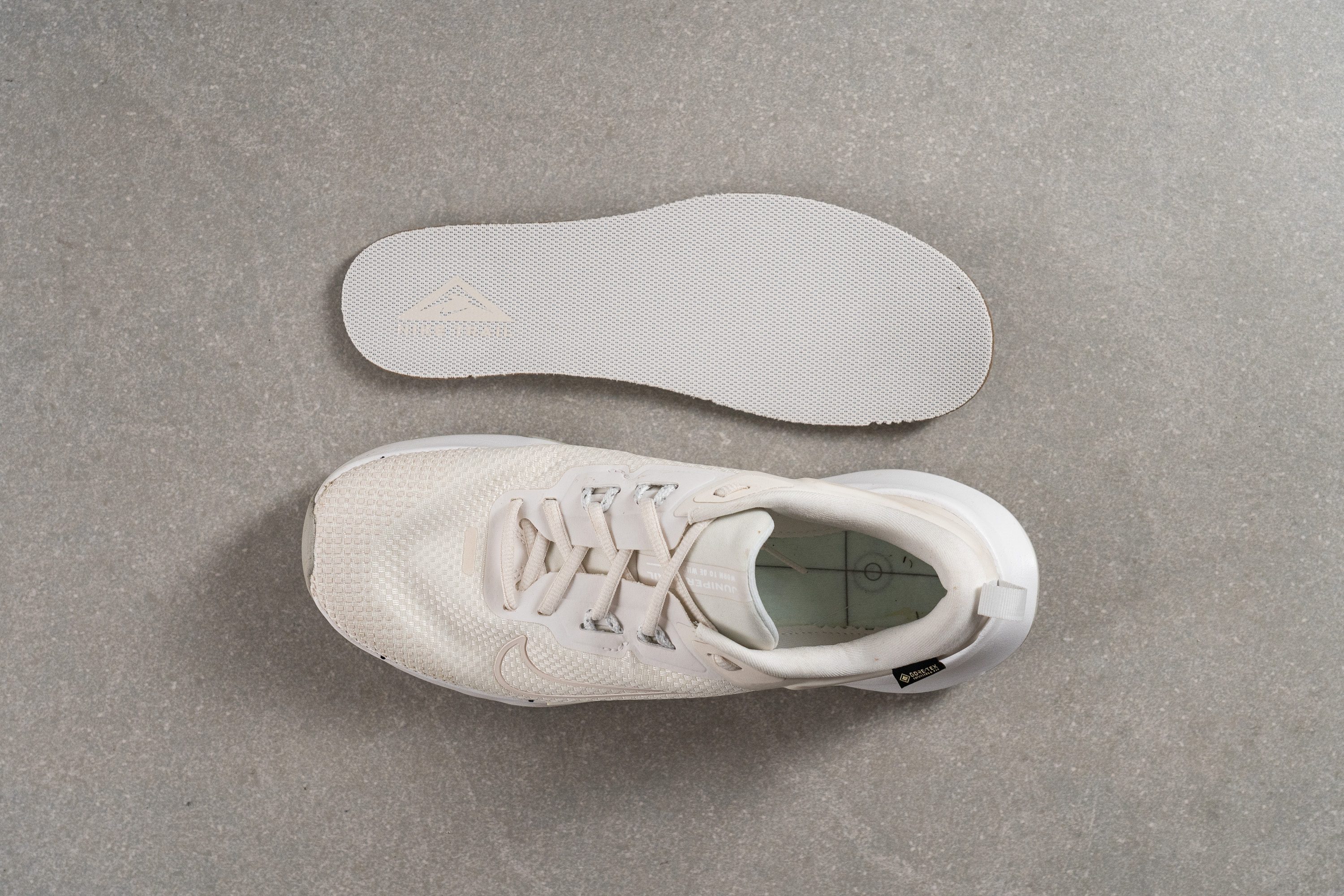
| Juniper Trail 2 GTX | Yes |
Midsole softness in cold (%)
Subjecting the Juniper Trail 2 GTX to a 20-minute freezer test, we observed a mere 12.8% decrease in the foam softness—a good outcome, particularly for a shoe designed with winter conditions in mind.
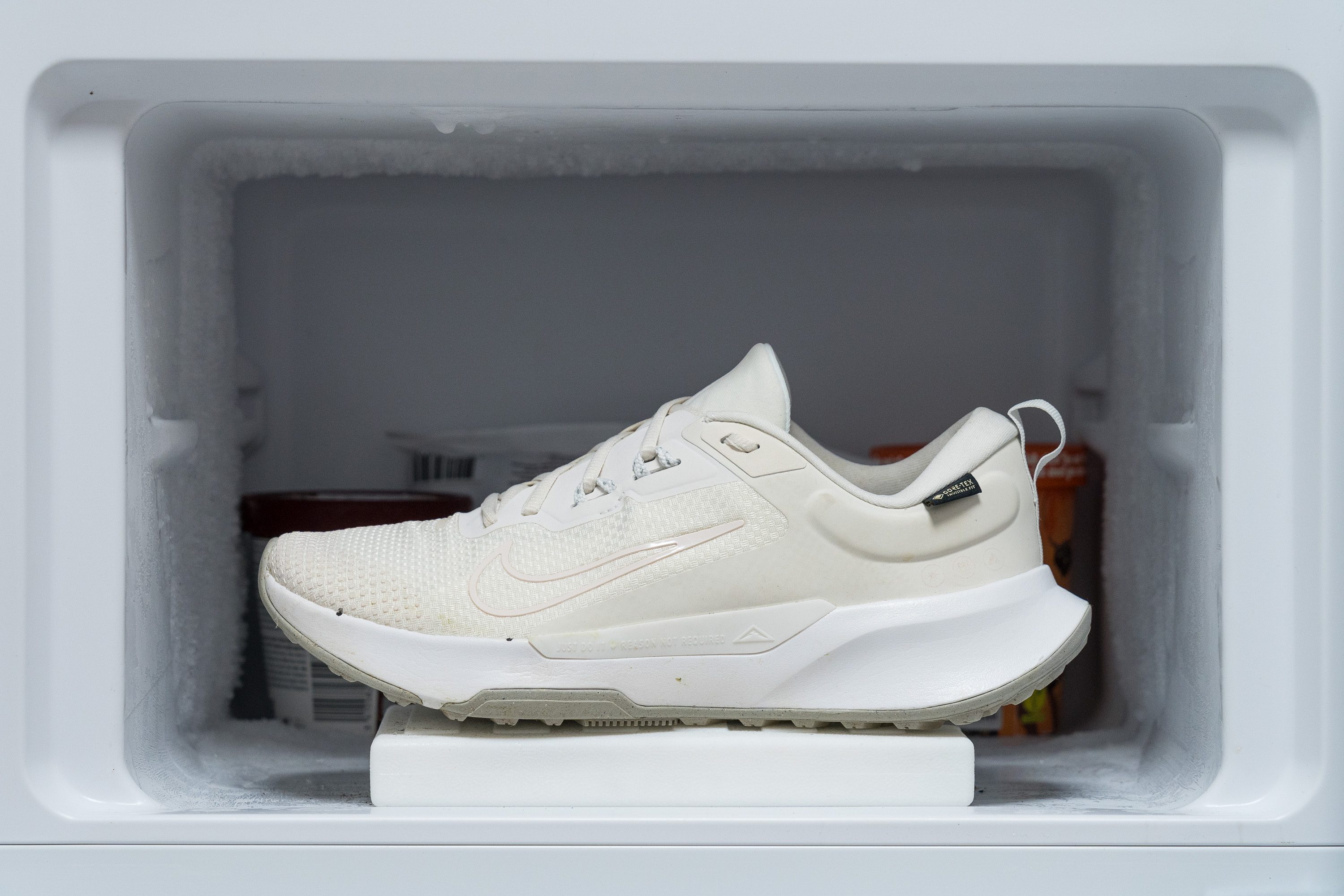
| Juniper Trail 2 GTX | 20% |
| Average | 26% |
Reflective elements
The Juniper Trail 2 GTX impressed us with its cool reflective elements, a crowd-pleasing feature that's part of the $45 price hike, enhancing visibility and safety on the trails.
While the standard $85 version lacks these elements, we're hopeful and excited to see them incorporated across all versions in the forthcoming v3—adding that extra layer of safety for every trail runner.
| Juniper Trail 2 GTX | Yes |
Tongue padding
The dual foam layers create an exceptionally cozy tongue (8.8 mm) for the instep.
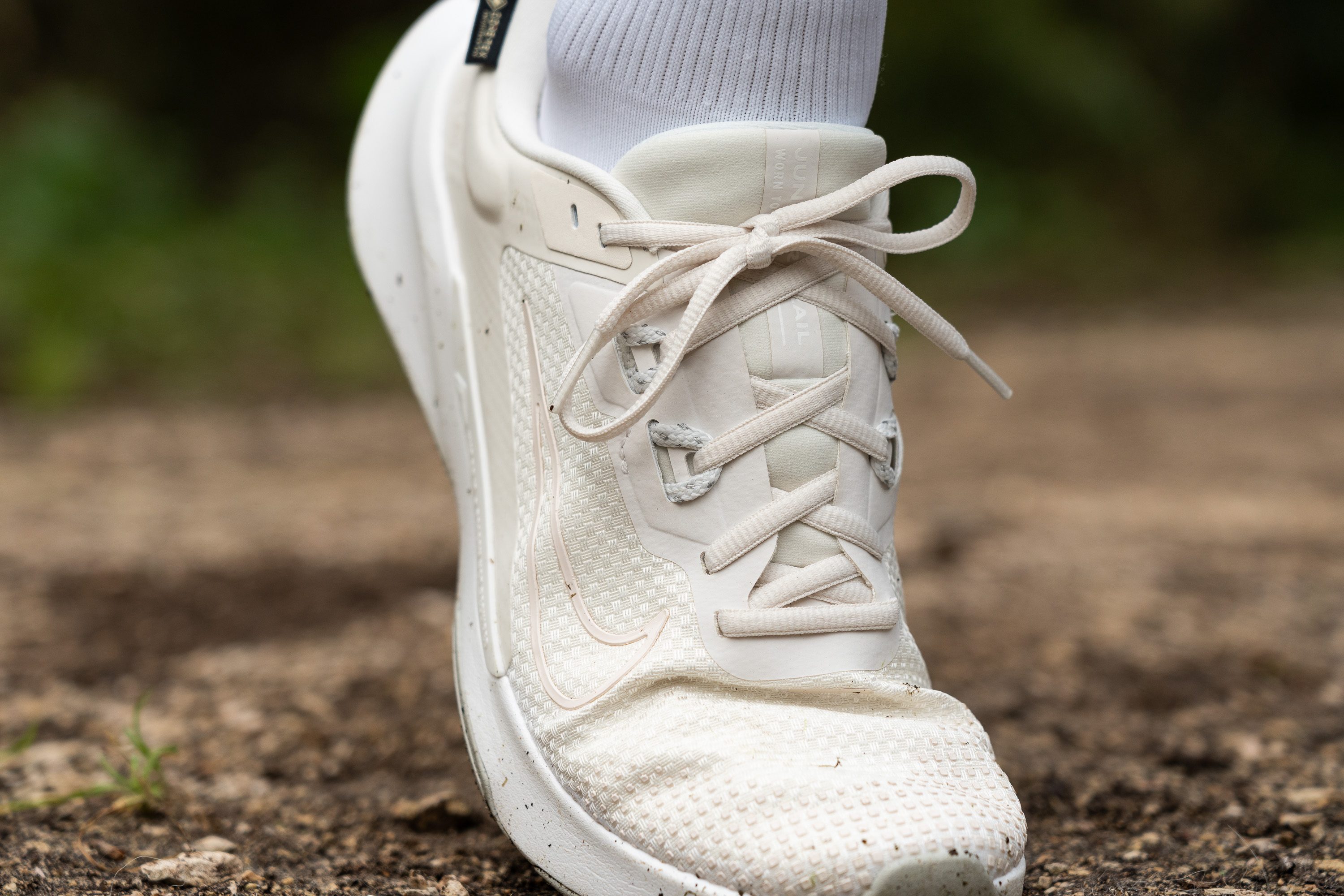
This design allows for snug lace tightening without compromising comfort!
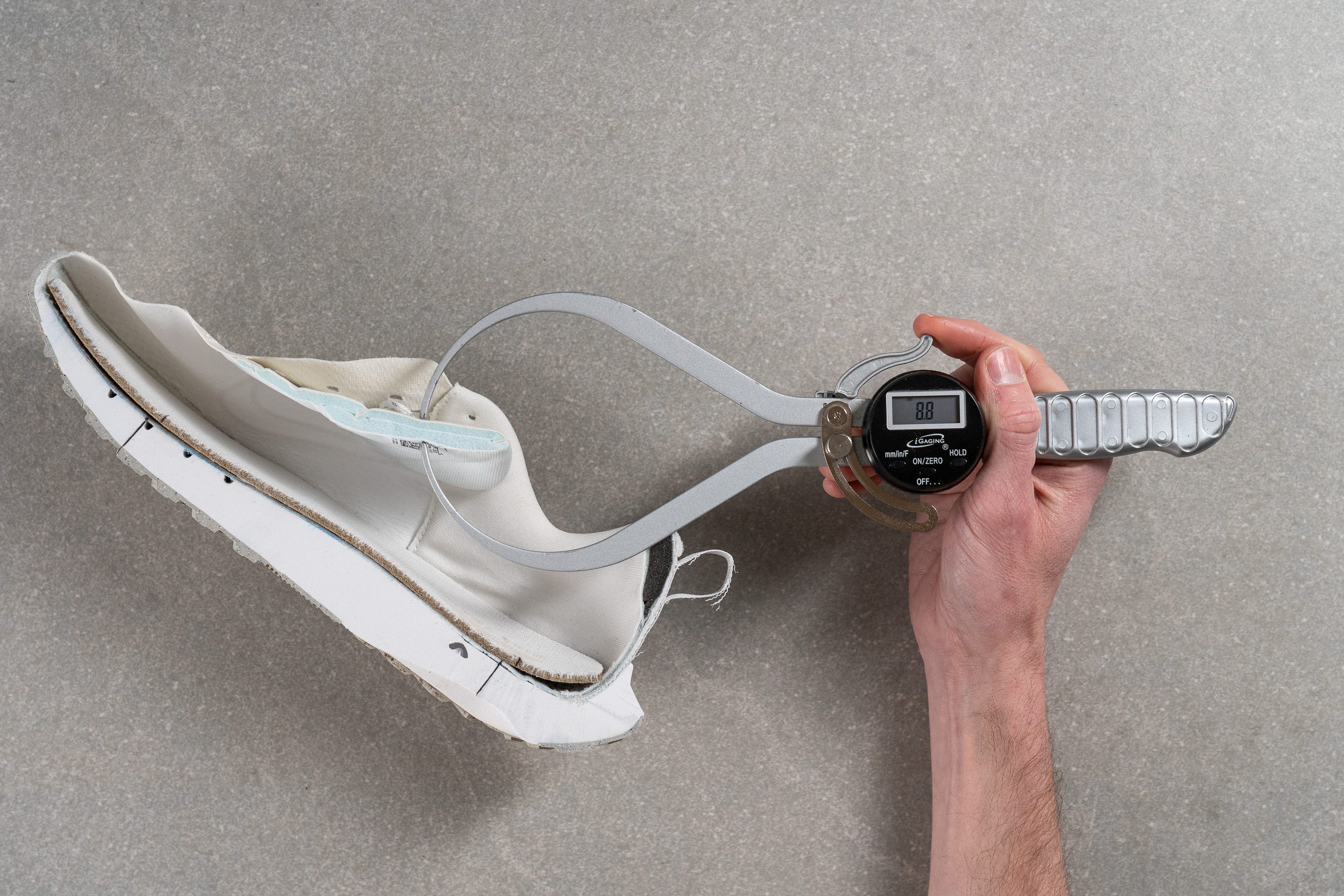
| Juniper Trail 2 GTX | 8.8 mm |
| Average | 6.4 mm |
Tongue: gusset type
The tongue boasts a different design compared to its non-GTX counterpart. Now it's tailored for waterproofing, yet it retains the gusset, which we deem crucial in a shoe like this.
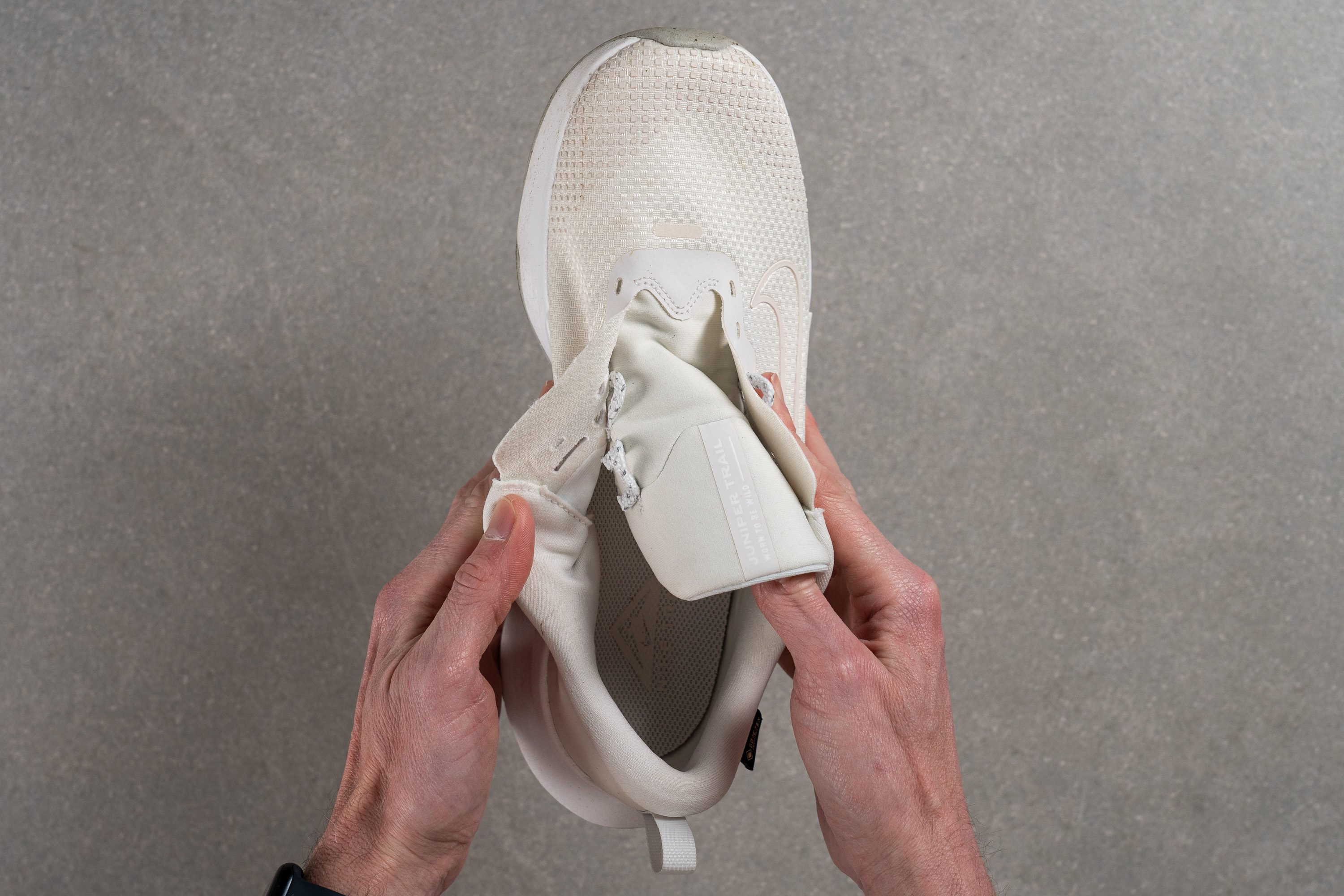
| Juniper Trail 2 GTX | Both sides (semi) |
Heel tab
We discovered a handy, finger-loop heel tab, ingeniously crafted to facilitate effortlessly sliding our feet into the shoe—a small yet significantly convenient feature!
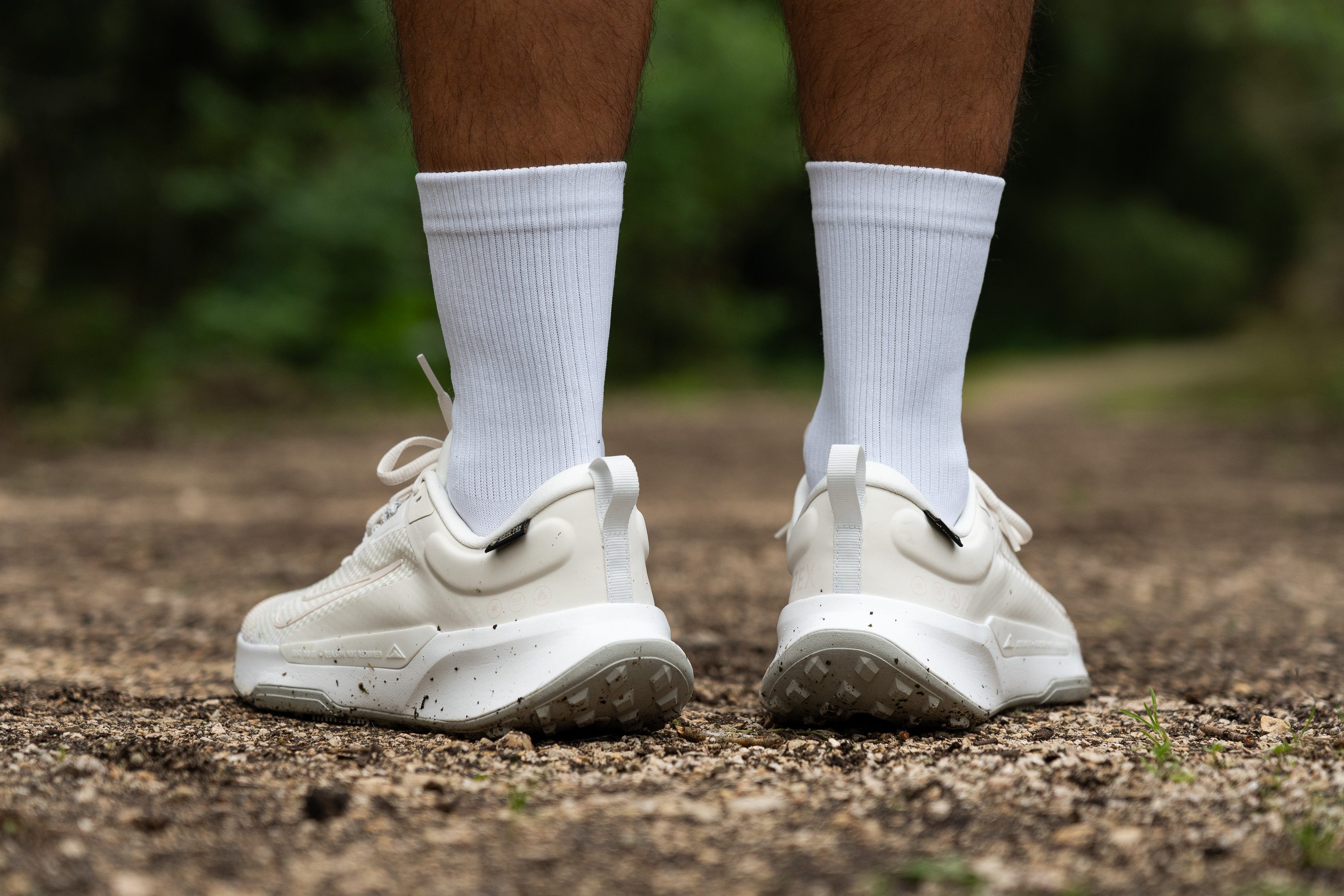
| Juniper Trail 2 GTX | Finger loop |

